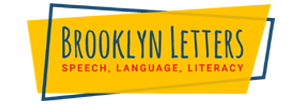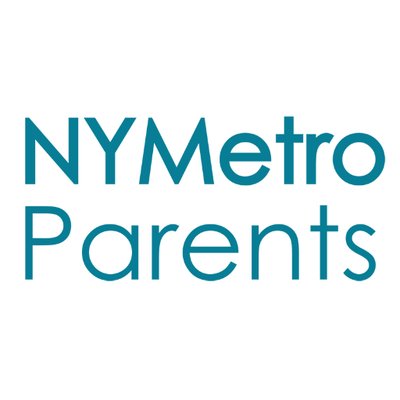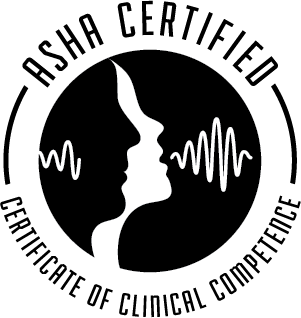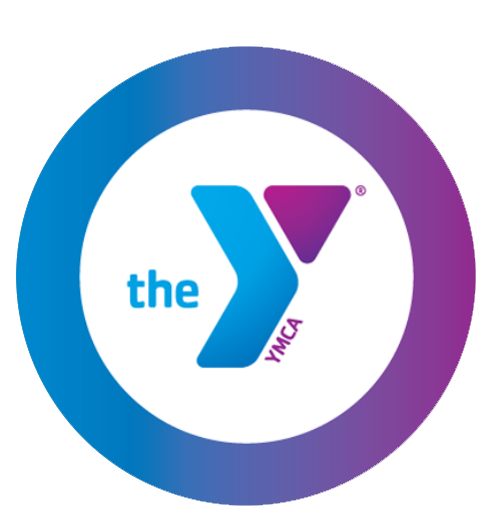SPEECH LANGUAGE THERAPISTS

As Featured In:
Speech-language pathologists (or speech and language therapists, speech therapists, or simply, SLPs) prevent, assess, diagnose, and treat speech, language, cognitive-communication, social communication, voice, and feeding disorders. Working with individuals of all ages—from babies to adults—SLPs conduct therapy sessions on a one-on-one basis and provide information for families, support groups, and the general public.
SPEECH, LANGUAGE, FEEDING THERAPY
We are experienced to treat babies to adults with a variety of speech-language difficulties, including articulation/enunciation difficulties (e.g lisp, tongue thrust, and/or difficulty saying sounds, and more), speech delay (including apraxia, oral motor difficulties, cleft palate), late talkers/expressive and receptive language delay (including multilingual homes), autism spectrum, e.g. Asperger’s, pervasive developmental disorder (PDD-NOS), social language delays, disfluency (stuttering), and feeding delays (including picky eaters, oral motor delays, medically fragile).
Our Licensed Speech & Language Therapists 🔎 qualifications include:
- Masters degree in speech-language pathology
- New York State and national certification
- PROMPT training
- We offer bilingual services (Spanish, Italian, Russian, Hebrew, French, Haitian – Creole, Polish, Hungarian, Ukrainian, French, Portuguese, Yiddish, Arabic, Turkish, & Japanese).
Our Speech-Language Therapists/Pathologists are licensed in the following states:
- New Jersey (NJ)
- California (CA)
- Michigan (MI)
- Missouri (MO)
- Washington (WA)
- Pennsylvania (PA)
- Idaho (ID)
- Maine (ME)
- Kentucky (KY)
- Oregon (OR)
- Maryland (MD)
- Washington, DC
- Connecticut (CT)
SPEECH, LANGUAGE, FEEDING THERAPY
We are experienced to treat babies to adults with a variety of speech-language difficulties, including articulation/enunciation difficulties (e.g lisp, tongue thrust, and/or difficulty saying sounds, and more), speech delay (including apraxia, oral motor difficulties, cleft palate), late talkers/expressive and receptive language delay (including multilingual homes), autism spectrum, e.g. Asperger’s, pervasive developmental disorder (PDD-NOS), social language delays, disfluency (stuttering), and feeding delays (including picky eaters, oral motor delays, medically fragile).
Our Licensed Speech & Language Therapists 🔎 qualifications include:
- Masters degree in speech-language pathology
- New York State and national certification
- PROMPT training
- We offer bilingual services (Spanish, Italian, Russian, Hebrew, French, Haitian – Creole, Polish, Hungarian, Ukrainian, French, Portuguese, Yiddish, Arabic, Turkish, & Japanese).
Our Speech-Language Therapists/Pathologists are licensed in the following states:
- New Jersey (NJ)
- California (CA)
- Michigan (MI)
- Missouri (MO)
- Washington (WA)
- Pennsylvania (PA)
- Idaho (ID)
- Maine (ME)
- Kentucky (KY)
- Oregon (OR)
- Maryland (MD)
- Washington, DC
- Connecticut (CT)
PROFESSIONAL SPEECH, LANGUAGE, LITERACY, COMMUNICATION, & FEEDING SERVICES
We are like the Olympic coaches of language arts; we specialize in the complete literacy remediation package: reading, writing, speaking, and listening services for preschoolers to adults. We are experienced with the following, expressive and receptive language disorders (language processing), executive functioning issues, autism spectrum, e.g. Asperger’s, pervasive developmental disorder (PDD-NOS), central auditory processing disorder, language-based learning disabilities (e.g. dyslexia), reading comprehension difficulties, and expressive writing disorders.
Learn about The Language Literacy Network– the many language components that unify into skilled reading and writing. The infographic is attached and may be freely shared –unaltered and for non-commercial purposes.
Read our blogs to know more about SLPs and what they do:
What is a Speech-Language Therapist?
What is the Difference Between Speech, Language and Literacy?
What are the qualifications for speech-language therapists pathologists?
BROOKLYN NEIGHBORHOODS (HOME VISITS)
FOR SPEECH LANGUAGE THERAPY SERVICES OUTSIDE OF BROOKLYN
We travel to:
BROOKLYN NEIGHBORHOODS (HOME VISITS)
FOR SPEECH LANGUAGE THERAPY SERVICES OUTSIDE OF BROOKLYN
We travel to:
Our Speech-Language Pathologists and Therapists
We travel to you and we also offer remote services. Some of our speech-language pathologists are trained in the Orton Gillingham approach. Many of our speech-language pathologists are trained in literacy and offer support with decoding, spelling and reading fluency services. Our speech-language pathologists and therapists work with babies, toddlers, school-age students, and adults with expertise in:
Our Speech-Language Pathologists and Therapists
We travel to you and we also offer remote services. Some of our speech-language pathologists are trained in the Orton Gillingham approach. Many of our speech-language pathologists are trained in literacy and offer support with decoding, spelling and reading fluency services. Our speech-language pathologists and therapists work with babies, toddlers, school-age students, and adults with expertise in:
- Pronunciation/Enunciation/Articulation
- Expressive Language Disorder
- Writing & Speaking Therapy
- Comprehension- Listening & Reading
- Listening Comprehension
- Auditory Processing
- Vocabulary
- Teens – Language Therapy
- Stuttering
- Feeding
- Oral Motor
- Voice
- AAC
- Adult Speech Therapy
- Public Speaking
- Accent Reduction Modification Speech Therapy
Don’t hesitate in reaching out to us! We are a local traveling educational and speech-language private practice based in New York City and the surrounding areas such as Westchester, Long Island, New Jersey, & Connecticut. All of our speech, language, literacy, and math services take place at your home or at your child’s school.
Our hourly rate includes both travel and instructional time (you only pay for instructional time!).
Manhattan, Connecticut, Westchester, & New Jersey Rates
Speech Language Feeding Therapy Rates
-
$155-$200 for 60 minutes
-
$135-$185 for 45 minutes
-
$105-$140 for 30 minutes
Brooklyn, Queens, Staten Island, & Long Island Rates
Speech Language Feeding Therapy Rates
-
$140-$185 for 60 minutes
-
$120-$160 for 45 minutes
-
$100-$125 for 30 minutes
*Please note that a few of our specialists might charge slightly higher rates than our average posted rates above.
**We do offer slight discounts for back-to-back sessions at your home for siblings. We also offer group rates if you create a small group (2-3 students) at your home, and these students have similar goals. We are not responsible for putting these groups together.
**We, DO NOT, accept the following: in-network insurance (see below for more information), Early Intervention, Board of Ed. (CPSE, CSE, RSA s), Medicare, etc. Out-of-network means that we do not accept insurance. You pay us directly on a weekly basis, and we provide you with a monthly out-of-network receipt. It's your responsibility to submit this invoice to your insurance company for reimbursement- scroll down to read more about insurance reimbursement codes.
OUT-OF-NETWORK SPEECH THERAPY BENEFITS
Do you want Brooklyn Letters to offer a free service to check if you have out-of-network (OON) speech-language benefits, which can greatly simplify the process for parents and provide valuable information about potential savings in speech-language therapy costs?
Brooklyn Letters offers a helpful service for parents by checking to determine if their health insurance provides out-of-network (OON) benefits for speech-language therapy. This can potentially lead to significant savings on therapy costs. If your insurance plan covers OON services, you may receive partial reimbursement for sessions with speech-language therapists, even if they are not within your insurance network. Keep in mind that while Brooklyn Letters can assist in determining your estimated eligibility for these benefits, upfront payment for all services will still be required to be paid by you directly to the therapist on a weekly basis. The therapist will provide you with a monthly invoice that you can submit to your insurance company for any approved OON reimbursement.
*Please note that a few of our specialists might charge slightly higher rates than our average posted rates above.
**We do offer slight discounts for back-to-back sessions at your home for siblings. We also offer group rates if you create a small group (2-3 students) at your home, and these students have similar goals. We are not responsible for putting these groups together.
**We, DO NOT, accept the following: in-network insurance (see below for more information), Early Intervention, Board of Ed. (CPSE, CSE, RSA s), Medicare, etc. Out-of-network means that we do not accept insurance. You pay us directly on a weekly basis, and we provide you with a monthly out-of-network receipt. It's your responsibility to submit this invoice to your insurance company for reimbursement- scroll down to read more about insurance reimbursement codes.
OUT-OF-NETWORK SPEECH THERAPY BENEFITS
Do you want Brooklyn Letters to offer a free service to check if you have out-of-network (OON) speech-language benefits, which can greatly simplify the process for parents and provide valuable information about potential savings in speech-language therapy costs?
Brooklyn Letters offers a helpful service for parents by checking to determine if their health insurance provides out-of-network (OON) benefits for speech-language therapy. This can potentially lead to significant savings on therapy costs. If your insurance plan covers OON services, you may receive partial reimbursement for sessions with speech-language therapists, even if they are not within your insurance network. Keep in mind that while Brooklyn Letters can assist in determining your estimated eligibility for these benefits, upfront payment for all services will still be required to be paid by you directly to the therapist on a weekly basis. The therapist will provide you with a monthly invoice that you can submit to your insurance company for any approved OON reimbursement.
SPEECH LANGUAGE THERAPISTS PATHOLOGISTS
Craig Selinger is a NY State licensed speech-language therapist (pathologist) and a learning specialist, who works with babies, preschoolers, and elementary and middle school students. His expertise is early childhood speech-language delay, e.g. autism spectrum disorders, late talkers (and related disorders and delays), and school-age language-based learning issues, including reading and expressive writing remediation, executive functioning, and enunciation therapy (all ages). He is also available for evaluation and consultation services. Craig and his speech-language therapists’ team also offer telepractice or internet online speech therapy services.
Learn more here.
SPEECH LANGUAGE THERAPISTS PATHOLOGISTS
Craig Selinger is a NY State licensed speech-language therapist (pathologist) and a learning specialist, who works with babies, preschoolers, and elementary and middle school students. His expertise is early childhood speech-language delay, e.g. autism spectrum disorders, late talkers (and related disorders and delays), and school-age language-based learning issues, including reading and expressive writing remediation, executive functioning, and enunciation therapy (all ages). He is also available for evaluation and consultation services. Craig and his speech-language therapists’ team also offer telepractice or internet online speech therapy services.
Learn more here.
Cathy E.
M.S. CCC-SLP, SPEECH LANGUAGE PATHOLOGIST
Cathy E.
M.S. CCC-SLP, SPEECH LANGUAGE PATHOLOGIST


Cathy received her master’s from the University of Portland and is a New York licensed speech-language pathologist who has worked with babies to adolescents for nearly 25 years. She has worked in all types of environments from early intervention, preschools, and elementary schools to private practice. She is excited about helping young children to adolescents achieve their full learning potential. She is experienced in working with a variety of speech and language disorders and delays including late talkers, articulation/enunciation problems including apraxia and oral motor difficulties, language processing issues, reading and writing remediation, stuttering, autism spectrum, feeding delay, hearing impairment, and augmentative communication. She understands how these delays treated early on in development can later help develop social and academic competence. For school-age children, Cathy incorporates each student's curriculum into the language therapy session, so they can improve their vocabulary and grammatical development, listening and reading comprehension, expressive writing skills, organizational skills, and more!
LOCATION: Remote
TYPE OF SERVICES: Individual therapy, group (2-3 children), parent consultations
EXPERTISE: Speech, language, feeding, stuttering, and specialized literacy remediation.
AGES: Birth through adults.
Cathryn B.
New York State licensed Speech-Language Pathologist and a certified Teacher of Students with Speech and Language Disabilities (TSSLD)
Cathryn B.
New York State licensed Speech-Language Pathologist and a certified Teacher of Students with Speech and Language Disabilities (TSSLD)
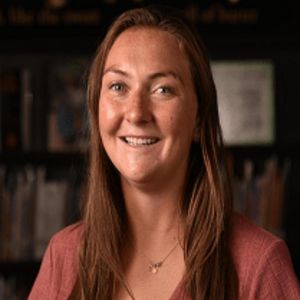
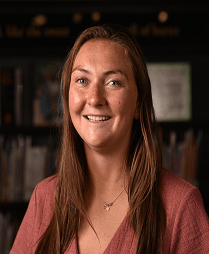
Cathryn is a New York State licensed Speech-Language Pathologist and a certified Teacher of Students with Speech and Language Disabilities (TSSLD). Cathryn was drawn to the field because of the vast spectrum of ages and disorders to work with. While working, she has developed a passion for early childhood language and literacy development. Cathryn has experience from working with non-verbal preschoolers to 5th graders working on improving reading comprehension and writing skills. Other areas she has experience with include articulation, phonology, phonemic awareness, pragmatics, executive functioning, vocabulary development, and grammatical development.
Cathryn currently works full-time in a public school in Brooklyn for the Department of Education, working with students from various backgrounds with unique learning styles and needs in 3K through 5th grade.
Cathryn believes a child’s success is related to the influences in his or her life. She believes in open communication and collaborating with families, teachers, and other related services in order for a child’s language, speech, and literacy skills to reach their full potential.
Cathryn uses evidence-based research and client-centered approaches when working with children. She has been trained in Recipe for Reading, Wilson’s Fundations, Evidence-Based Practice for Language Analysis, and Building Academic Vocabulary and Deepening Comprehension.
LOCATION: Brooklyn: Marine Park, Flatbush, Mill Basin, East New York, Canarsie; Queens: Neponsit, Belle Harbor, Rockaway Park, Arverne
TYPE OF SERVICES: Individual therapy, group (2-3 children), speech-language evaluations, parent consultation, and training
EXPERTISE: early literacy, speech and language delays, executive functioning and organization, autism spectrum disorders, reading/auditory comprehension, oral and written language development
AGES: birth through middle school
Andrea S.
M.A., CCC-SLP, SPEECH LANGUAGE PATHOLOGIST
Andrea S.
M.A., CCC-SLP, SPEECH LANGUAGE PATHOLOGIST
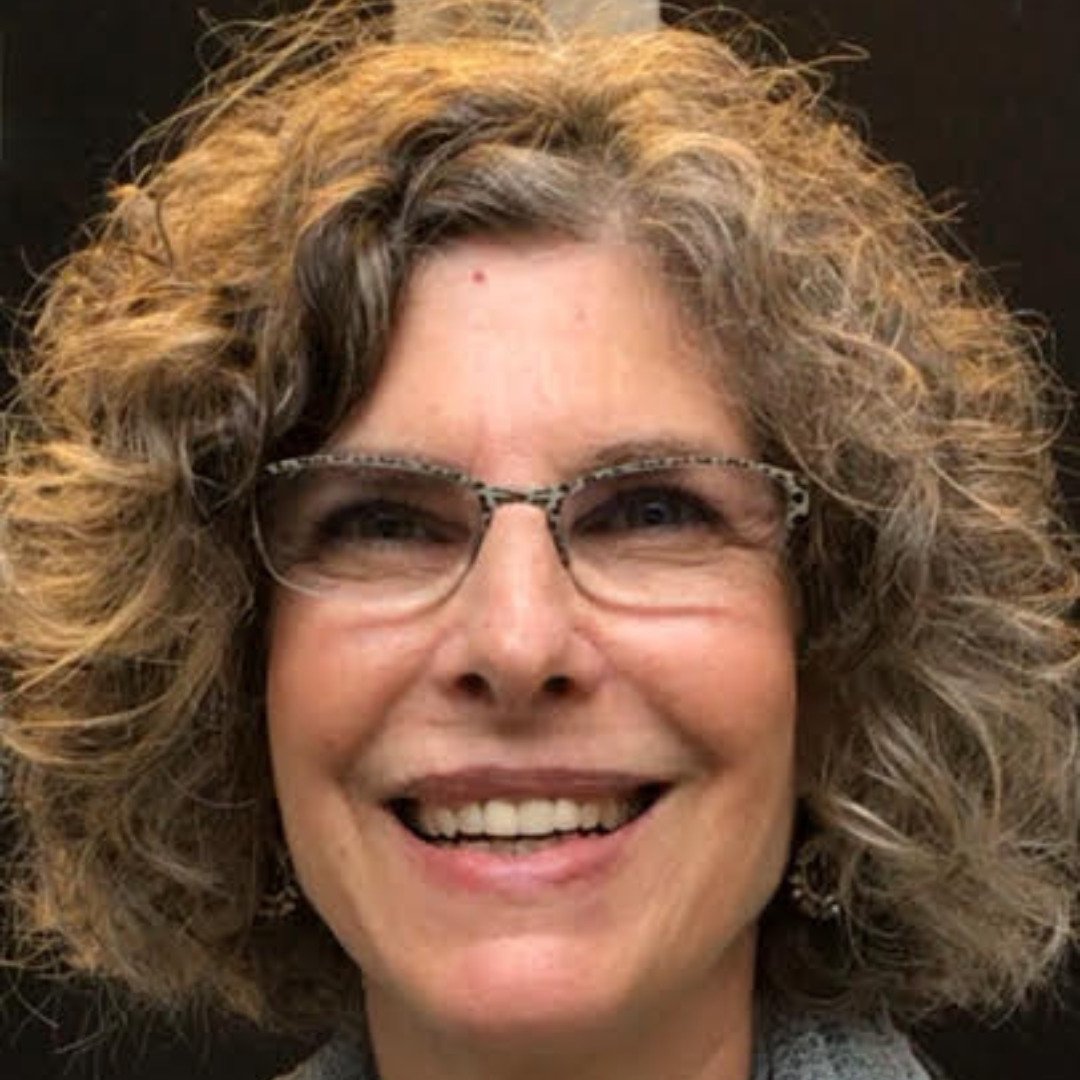
Andrea is a licensed Speech-Language Pathologist with over 20 years of experience. She holds a B.A. in Religion from Oberlin College and an M.A. in Speech-Language Pathology, which begun at the University of Pittsburgh, and completed at Queens College-QUNY following a family move to NYC.
Andrea’s foray into early language began as a volunteer with toddlers on a kibbutz in Israel. Back in the United States, she began her professional career as a preschool teacher and was motivated by her love of child development to pursue coursework in early childhood education at Carlow College and then to begin her M.A. in speech/language pathology at the University of Pittsburgh. Her research experience there led to a life-long commitment to evidence-based practice. Once in the NYC public schools, it was a smooth slide from language development to reading development. Andrea has studied the Orton Gillingham approach through courses completed with the Reading Reform Foundation, Wilson, and The Spalding Method.
Although a school-based therapist, Andrea loves being with children at home where they are most comfortable and where she can see and use what they are most interested in. She embraces children wholly and takes great delight in them!
As a specialist, she is attuned to points of struggle and challenge and then finding ways to build from strength to strength. She relies on parents and teachers for information about their concerns, their observations, and situational demands.
Andrea’s areas of expertise include late talkers, phonemic awareness and reading/decoding, reading comprehension, expressive language organization, and writing.
LOCATION: Upper West Side, Morningside Heights, Greenwich Village
TYPE OF SERVICES: Individual therapy, parent consultation
EXPERTISE: Late talkers, phonemic awareness, articulation, elementary school language demands
AGES: Toddler through elementary school
Kristin G.
New York State bilingual (Spanish/ English) licensed Speech-Language Pathologist and certified Teacher of Students with Speech and Language Disabilities (TSSLD)
Kristin G.
New York State bilingual (Spanish/ English) licensed Speech-Language Pathologist and certified Teacher of Students with Speech and Language Disabilities (TSSLD)
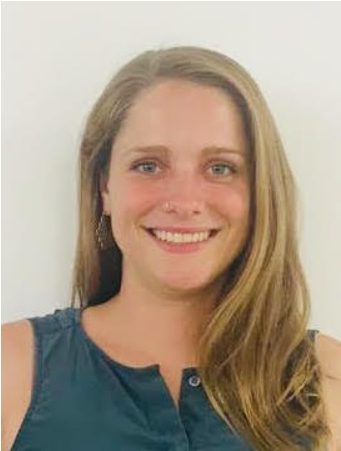

Kristin is a New York State bilingual (Spanish/ English) licensed Speech-Language Pathologist and certified Teacher of Students with Speech and Language Disabilities (TSSLD). Kristin completed her Master’s of Science in Speech-Language Pathology at Teachers College, Columbia University and holds her Certificate of Clinical Competence in Speech-Language Pathology (CCC-SLP) from the American Speech-Language-Hearing Association.
Kristin has provided speech-language therapy as well as academic intervention in schools and homes both in New York City and internationally. She has supported students in English and Spanish in addition to working with multilingual students from diverse linguistic backgrounds. One area of expertise is evaluating students from multilingual environments to differentiate typical multilingualism from potential speech, language, and learning disorders.
Kristin is also a learning specialist, having received training in a variety of systems and approaches to address literacy, math, writing, and executive function challenges. She has 5+ years of experience supporting students with diverse learning differences from elementary school through high school. Having worked in this role in schools within classrooms, she’s well aware of the skills children need to access and excel in the curriculum. She looks for the most effective targets and strategies to not only support students in weak subject areas but hopefully have positive and long-lasting effects across subjects.
Over her career, Kristin has worked with children with a wide variety of diagnoses including speech and language delay but also dyslexia/dysgraphia, ADHD/ADD, executive functioning deficits, autism spectrum disorder, and various syndromes. Her approach to speech-language delays is tailored to the needs and development of the child. For younger students, therapy is based on play and the interests of the child as much as possible. For older students, careful consideration is given to what language needs children to have in their daily functioning whether that be academic or participating in the community.
Kristin is also equipped to provide phonics-based reading intervention (Wilson, Orton Gillingham, SPIRE) as well as for other areas of reading difficulties. Reading and writing intervention is also always directly tied to the needs of the child in their academic setting. Whenever possible, she’s in contact with teachers to understand what the child’s challenges look like in the classroom. This might include phonics work, explicit instruction to support reading comprehension, learning the conventions and organization of writing, and more. When children need help with executive functioning, as with reading and writing intervention, Kristin works in tandem with parents and educators to individualize therapy and intervention to fit the specific needs of the child. This might mean helping the child find systems and strategies for organizing work, writing, or time.
Regardless of the need, Kristin’s approach is child and family-centered, seeking to make the child and family partners in the intervention process. She prioritizes functionality and transfer of skills to the child’s everyday life in identifying goals and planning therapy. She is passionate about seeing children achieve their goals and feel confident and capable.
LOCATION: Brooklyn: Bed-Stuy, Crown Heights, Prospect Heights, Fort Green, Clinton Hill, Downtown Brooklyn, south Williamsburg. Manhattan: Lower East Side
TYPE OF SERVICES: Individual and group (2-3 children) speech-language therapy, speech-language evaluations, parent and teacher consultation, reading/writing intervention, reading/ writing evaluations, executive function support, math up to 10th grade
EXPERTISE: Speech-language delays, articulation, autism spectrum disorders, dyslexia/ dysgraphia, multilingualism, executive function disorder,
AGES: birth through high school
Marcy G.
M.S., CCC-SLP, TSSLD, SPEECH-LANGUAGE PATHOLOGIST
Marcy G.
M.S., CCC-SLP, TSSLD, SPEECH-LANGUAGE PATHOLOGIST


Marcy is a Speech and Language Pathologist (SLP) with a New York State certification as a Teacher of Students with Speech and Language Disabilities (TSSLD). She earned her Master of Science in Speech and Language Pathology from Teachers College, Columbia University and holds the Certificate of Clinical Competence from the American Speech-Language-Hearing Association (ASHA). Her experience spans a diverse range of clients, from infants to adults with brain injuries.
Marcy’s professional endeavors extend beyond individual therapy; she is deeply engaged in research on dyslexia at the PhD level, exploring the myriad factors that contribute to the condition. Additionally, she serves as an adjunct faculty member at Brooklyn College, guiding graduate students in Speech and Language Pathology through courses on Literacy and Language-Based Learning Disabilities and Speech Sound Development and Disorders.
A practitioner trained in the Orton-Gillingham Approach, Marcy also has experience with the Wilson Reading System and the Hochman Writing Method. Her career includes a tenure with the New York City Department of Education, where she provided therapy and trained other SLPs. Her private practice now emphasizes literacy—focusing on phonological awareness, reading delays, dyslexia, and writing difficulties—as well as language and speech delays and disorders.
Marcy champions the importance of a positive therapeutic relationship and effective communication with families and educational teams, believing these elements are crucial to therapy’s success. She is committed to working collaboratively with individuals, families, caregivers, and professionals to foster achievement in all aspects of life.
LOCATIONS: Brooklyn – from Park Slope to Brooklyn Heights, to Bed Stuy and Prospect Heights; some Manhattan locations
TYPE OF SERVICES: Individual therapy, parent and school consultations
EXPERTISE: Literacy: delays in phonological awareness and prereading skills, reading delays, dyslexia and writing disorders (dysgraphia); language delays and disorders, expressive and receptive; and speech delays and disorders, both motor-articulatory and phonological delays and disorders
AGES: Toddler through adult
Amanda O.
M.S., CCC-SLP, TSSLD, SPEECH-LANGUAGE PATHOLOGIST
Amanda O.
M.S., CCC-SLP, TSSLD, SPEECH-LANGUAGE PATHOLOGIST


Amanda is a New York and New Jersey licensed Speech-Language Pathologist and a certified Teacher of Students with Speech and Language Disabilities (TSSLD). She holds a Certificate of Clinical Competence from the American Speech-Language-Hearing Association (ASHA). Amanda earned her Master of Science degree in Speech-Language Pathology at Touro College in 2020 and her Bachelor of Arts degree in Speech-Language Pathology from St. John’s University in 2018. She has experience working with a wide variety of ages in both general education and special education settings.
Amanda has hands-on experience working with various speech and language difficulties including Expressive/Receptive Language, Articulation, Phonological Processes, Apraxia, Fluency, Selective Mutism, Phonological Awareness, Social Pragmatics, and Augmentative and Alternative Communication (AAC).
She also has experience working with students with reading comprehension, vocabulary, and writing difficulties. She provides support for students by teaching them strategies that foster independence and confidence in their skills. She also has experience working with students with auditory processing difficulties including deficits in word retrieval, memory, sequencing, and following directions. Additionally, Amanda works with older students to develop transitional life skills necessary for daily living. Currently, Amanda works in a special education preschool. She helps her students facilitate language utilizing a Core Vocabulary approach. She also utilizes a variety of cues (verbal, visual, tactile, and kinesthetic) to help her students with Speech Sound Disorders.
Additionally, in previous years, Amanda has worked with elementary, middle, and high school age students with mild to moderately severe communication difficulties. Amanda is competent in teaching her students how to expand verbal language, improve intelligibility of speech, answer basic and higher-level questions, and formulate language in grammatically correct and cohesive sentences. She has also worked closely with Autistic students to help support their social communication skills including flexible thinking, problem-solving, perspective taking, and regulating emotions.
Amanda leads with integrity and transparency to build trust with both parents/caregivers and students. She creates a welcoming and affirming atmosphere to encourage student motivation and maximize student potential. Amanda builds a strong rapport with clients to establish an environment where all feel safe, comfortable, and respected. Her therapy materials are carefully selected and utilized to pinpoint the specific speech and language needs of each student. She believes in teamwork, communication, and collaboration with clients, parents/caregivers, and related providers to develop strategies for carryover skills. Amanda understands that every student learns differently and carefully assesses each child to ensure a proper treatment plan is in place. She is well-versed in both play therapy and traditional therapy. Her therapy style is catered to meet the needs of each specific child.
Amanda brings her strengths of creativity, craftiness, and fun to all of her therapy sessions. Her materials are engaging and relatable so that students are motivated to participate and reach their full potential.
LOCATION: STATEN ISLAND: All Zip Codes, BROOKLYN: Bay Ridge, Dyker Heights, NEW JERSEY (On a case-by-case basis), TELE-THERAPY (ANYWHERE IN NEW YORK AND NEW JERSEY)
TYPE OF SERVICES: Individual therapy, Group therapy (2-3 children), Parent Coaching
EXPERTISE: Speech and Language Delays, Articulation, Phonological Awareness, Decoding/Reading Fluency, Reading Comprehension, Writing, Social Communication Skills
AGES: 1-21
Theo W.
M.S. CCC-SLP, Speech Language Pathologist
Theo W.
M.S. CCC-SLP, Speech Language Pathologist
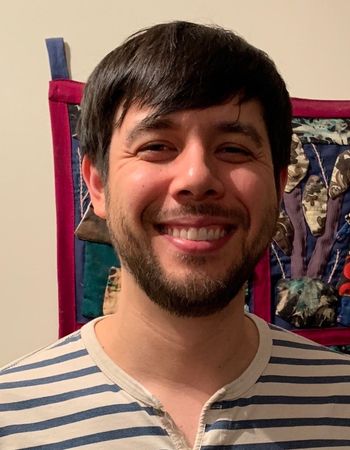
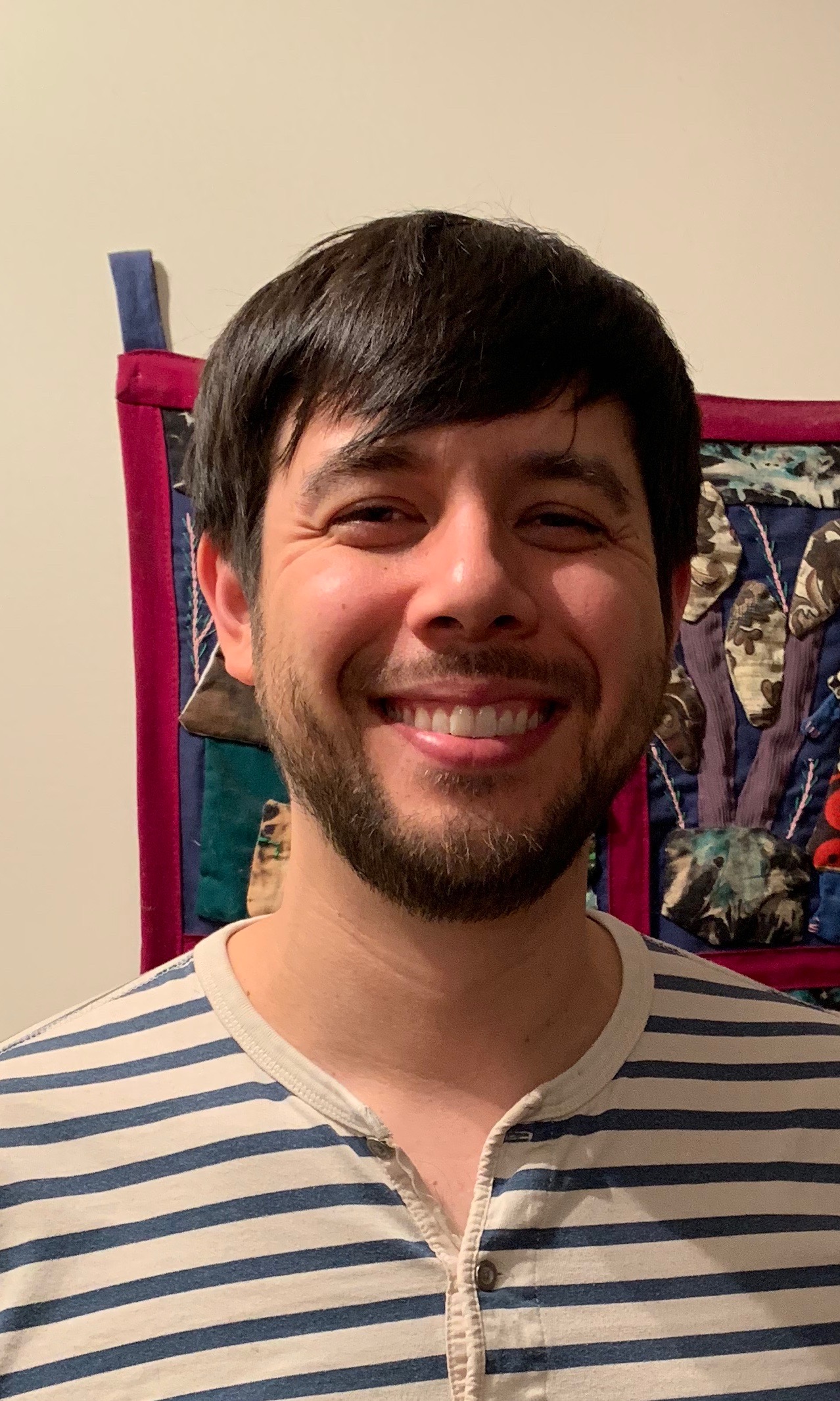
Theo is a New York State licensed Speech-Language Pathologist and holds a Certificate of Clinical Competence in Speech-Language Pathology (CCC-SLP) from the American Speech and Hearing Association (ASHA). He received his Master of Science in Communication Sciences and Disorders from Adelphi University and his Bachelor of Arts from the University of California, Santa Cruz.
Theo started his career working in the NYC Early Intervention program, and has been working with Brooklyn Letters since 2018. He has extensive experience working on early language acquisition (late-talkers), expressive/receptive language, and articulation/speech sound disorders with toddlers, preschoolers, and elementary school students. Theo speaks Japanese fluently and has treated clients in both English and in Japanese.
Theo incorporates the client’s interests, tailoring a unique approach for each individual he works with. He strives to create a learning atmosphere that is both productive and fun. Theo believes in a collaborative approach, and works closely with families to maximize carryover opportunities during daily routines and interactions; learning does not stop when the session ends.
In addition to speech and language, Theo is also passionate about music and food. He has been playing piano since he was five years-old, and has played electric guitar in a rock band, sang in a University choir, and has extensively studied jazz history and performance. Theo has taught guitar and piano lessons to adolescents and adults, was also a waiter at a Michelin Star restaurant before becoming a speech therapist.
LOCATION: Brooklyn: Park Slope, Clinton Hill, Fort Greene, Prospect Heights, Bed-Stuy, Williamsburg, Bushwick, Brooklyn Heights and other locations on a case-by-case basis.
TYPES OF SERVICES: Individual therapy, Japanese/English evaluations
EXPERTISE: Early Speech and Language Development, Pre-language skills, Autism Spectrum Disorder, Social Communication (Pragmatic Language), Expressive/Receptive Language Delays, Articulation, Apraxia of Speech, & Pragmatic/Social Skills
AGE: All ages
Rachel V.
M.S., CCC-SLP, TSSLD, SPEECH LANGUAGE PATHOLOGIST
Rachel V.
M.S., CCC-SLP, TSSLD, SPEECH LANGUAGE PATHOLOGIST


Rachel is a New York State licensed Speech-Language Pathologist and a certified Teacher of Students with Speech and Language Disabilities (TSSLD). She is also Prompt Trained as well as Sequential Oral Sensory (SOS) feeding trained. Rachel holds her Certificate of Clinical Competence in Speech Language Pathology (CCC-SLP) from the American Speech-Language-Hearing Association (ASHA). Rachel completed an MS in Speech-Language Pathology at Long Island University, Brooklyn. Although she does not hold a bilingual extension, she is fluent in Portuguese and conversational in Spanish. She has experience working with children of all ages and has worked in a variety of settings: Early Intervention, Pre-schools, Elementary Schools (K-8), private practice, and adult Skilled Nursing Facilities. Rachel creates a fun and motivating learning environment. Rachel has expertise in articulation, expressive and receptive language disorders, speech sound disorders, feeding and swallowing, and Autism Spectrum Disorder. Rachel is passionate about working with school-aged students, Early Intervention, and CPSE aged children who are struggling with language based learning issues, e.g. difficulties with reading, writing, expressive and receptive language skills, pragmatics skills, auditory processing, and articulation skills.
LOCATION: Brooklyn (Mill Basin, Sheepshead Bay, Dyker Heights, Bensonhurst, Bay Ridge, Gravesend, East New York) Other Brooklyn locations on case-by-case basis.
Queens (Howard Beach, Ozone Park, Kew Gardens, Forest Hills, Richmond Hill, Middle Village, Glendale, Rego Park, Whitestone) Other Queens locations on case-by-case basis.
TYPE OF SERVICES: Individual therapy, Group therapy, and Parent consultations
EXPERTISE: Early Speech and Language Development, Autism Spectrum Disorder, Social Communication (Pragmatic Language), Feeding, Dysphagia, Expressive/Receptive Language Delays, Reading Comprehension, Articulation, Auditory Processing, Fluency, and Apraxia of Speech.
AGES: Birth to Adults
Rachel C.
M.S., CCC-SLP, TSSLD, QOM
Rachel C.
M.S., CCC-SLP, TSSLD, QOM


Rachel C. is a New York and New Jersey licensed Speech-Language Pathologist. She received her B.S. in Communication Sciences and Disorders from The Pennsylvania State University and her M.S in Speech-Language Pathology from Syracuse University. She holds her Certificate of Clinical Competence (CCC) in Speech-Language Pathology and is a member of the American Speech-Language and Hearing Association (ASHA). Rachel holds a Certificate for Teaching Students with Speech-Language Disabilities (TSSLD) from the New York State Department of Education and is a Qualified Orofacial Myologist (QOM). In addition, Rachel is PROMPT trained and certified in Lee-Silverman Voice Treatment (LSVT-LOUD). She recently attended the Talk Tools Feeding First 2021 Conference and has completed Diane Bahr’s course in Treatment for Feeding, Speech, and Mouth Functions in Pediatrics.
Rachel’s background covers a wide range of experience working with various levels of disabilities in the pediatric, young adult, and adult populations. She has extensive experience in Feeding and Swallowing Disorders (pre-feeding skills, sensory-based feeding/picky eaters, and general dysphagia), Oral Motor Therapy, Augmentative and Alternative Communication (AAC), Traumatic Brain Injury, Neurogenic Communication Disorders, Articulation and Phonological Disorders, Apraxia, Fluency, Aphasia, and Receptive/Expressive Language Delays. Rachel has worked in a variety of clinical settings including private schools for students with traumatic brain injuries/brain-based disorders, inpatient acute care hospitals, neonatal intensive care units (NICU), and outpatient clinical settings. Rachel provides training and consultations to parents and caregivers on feeding, communication, and AAC strategies to help skills carry over into her clients’ everyday lives.
Rachel believes in the benefits of a dynamic assessment and treatment approach that incorporates family values and evidence-based practice. She enjoys working with clients of all ages and their families for a team-based approach to success. She is a strong believer that everyone deserves a voice and strives to create a positive and fun therapy atmosphere. In her free time, Rachel loves exercising on the Peloton, traveling, and exploring new restaurants in the NJ and NY area!
Rachel has experience working with nonverbal students, late talkers, and students with pre and emergent literacy skills in expressing their everyday wants and needs. Rachel works closely with parents/caretakers on creating a rich communication environment and robust support system in the home to help expand her client’s overall expressive and core vocabulary repertoire. She also has experience with phonological awareness, pragmatic/social communication, and reading comprehension skills.
LOCATION: New Jersey (Weehawken, Hoboken, Jersey City, Edgewater- Hudson County), Teletherapy (REMOTE), Manhattan, NY
TYPE OF SERVICES: Individual therapy, group (2-3 children), speech-language evaluations, parent consultation, caregiver and teacher training/coaching
EXPERTISE: Feeding and Swallowing Disorders (dysphagia), Augmentative and Alternative Communication (AAC), Orofacial Myology, Expressive and Receptive Language Delays
AGES: Birth to Adult
Alina G.
M.S. CCC-SLP/TSSLD, SPEECH-LANGUAGE PATHOLOGIST
Alina G.
M.S. CCC-SLP/TSSLD, SPEECH-LANGUAGE PATHOLOGIST


Alina is a New York State licensed Speech-Language Pathologist and certified Teacher of Students with Speech and Language Disabilities (TSSLD). She holds her Certificate of Clinical Competence in Speech-Language Pathology (CCC-SLP) from the American Speech-Language-Hearing Association. Alina completed her Masters of Science in Speech-Language Pathology at Brooklyn College. She received her Bachelor of Science in Speech-Language Pathology from Brooklyn College. Alina is fluent in Russian and conversational in Spanish.
Since 2012, Alina has worked in private, public, & charter schools as well as in private practice. While in private practice, Alina provided evaluations and treatment for pediatrics with speech delays and adults with post-stroke, aphasia, Parkinsons Disease, and dementia. Alina is currently a full-time Speech and Language Pathologist in a middle school within the NYC Department of Education. Here, she works with middle school students Grades 6-8 who demonstrate difficulties with receptive and expressive language skills, pragmatic social skills, executive functioning, organization and time management, reading comprehension, oral and written verbal expression.
Alina’s therapy focuses on language-based learning difficulties including listening/reading comprehension, inferential/critical thinking, receptive/expressive vocabulary development, narrative development, phonological awareness, word recognition skills, decoding, grammar, oral and written sentence structure (syntax), and organizing the students ideas/thoughts to target coherent oral and written expression. A large part of Alina’s sessions also focuses on articulation, where she frequently targets remediation of K, G, L, R, and S phonemes as they tend to be difficult for youngsters aged 4-7. Alina believes in helping students maximize their academic success by working through their strengths to remediate their weaknesses.
Alina prides herself on providing unique and specialized services tailored to fit the needs of each client and family. She believes that by providing a stimulating environment that is mindful of each client’s specific interests, she can maximize learning potential and communicative success.
In addition, Alina is certified by the Institute of Language & Phonology in the COMPTON P-ESL Program, which is a research-based and result-driven approach to accent modification training. Alina has worked with a number of adults who are looking to improve their English pronunciation, public speaking, and overall vocal clarity and confidence in professional communication settings.
Teletherapy/Remote Sessions are offered during this time.
LOCATION:BROOKLYN: Ditmas park, Kensington, Windsor Terrace, Park Slope, South Slope, Around Prospect Park South and West; MANHATTAN: Flatiron, Gramercy, Greenwich Village, West Village, East Village, Union Square
EXPERTISE: Receptive and Expressive Language Delays/Disorders, Language to Literacy Connection (phonological awareness, reading comprehension, word recognition, decoding), Higher-Level Thinking, Articulation/Intelligibility, Fluency, Executive Function Deficits (organization, reasoning, poor decision making, problem-solving, time management, impulsivity), Narrative/Expository Discourse, Cognition (memory, attention, reasoning) Pragmatics/Social Skills, Accent Modification
AGES: Preschool, Kindergarten, School Age, Middle School, High School, Adults
Melissa L.
M.S., CCC-SLP
Melissa L.
M.S., CCC-SLP
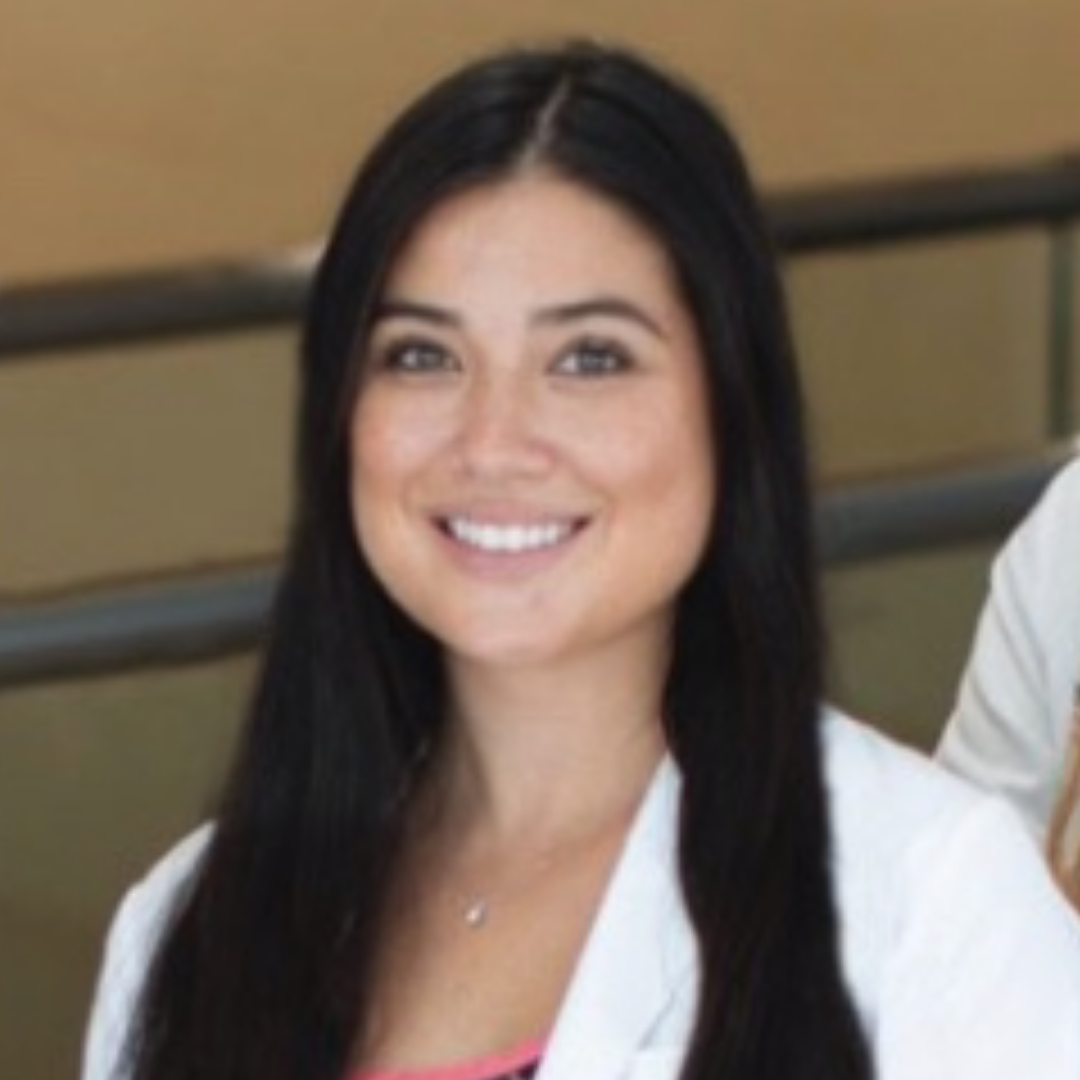

Melissa is a New York State licensed Speech-Language Pathologist who received her undergraduate degree from American University and a Master’s degree in Speech-Language Pathology from New York Medical College (a medically oriented master’s program). She holds her Certificate of Clinical Competence in Speech-Language Pathology (CCC-SLP) from the American Speech-Language-Hearing Association (ASHA) and is a recipient of ASHA’s Award for Continuing Education. Her advanced clinical education has included ongoing education in the specialized area of feeding and swallowing, including SOFFI (Supporting Oral Feeding in the Fragile Infant) training.
Since graduating in 2016, Melissa has worked in a variety of acute care, inpatient rehabilitation, and outpatient medically-based settings including the Neonatal Intensive Care Unit (NICU), Pediatric Intensive Care Unit (PICU), and CCVCU (Congenital Cardiovascular Critical Care Unit), and has taken her experience from working with this high acuity/medically involved population and further applied these skills to more stable populations in the home and outpatient settings.
She also serves as an Adjunct Professor at New York Medical College, training post-graduate licensed clinicians in pediatric feeding and swallowing. She specializes in complex, medically-based feeding/swallowing disorders, as well as sensory and behaviorally based feeding difficulties. Her area of passion is working with infants with feeding and swallowing difficulties.
Melissa prides herself on a holistic approach to assessment and treatment including extensive parent education and empowerment while taking the child’s needs and family’s goals into consideration to achieve the best, most functional outcomes possible. She employs evidence-based therapy and has extensive experience collaborating with the interdisciplinary team, including medical doctors and a variety of subspecialists (GI, ENT, Pulmonology, Registered Dietitians). She believes in a child-led, family-focused approach to feeding therapy and strong collaboration to best serve the child’s needs.
LOCATION: BROOKLYN: Park Slope, South Slope, Prospect Heights, Windsor Terrace, Carroll Gardens, Clinton Hill, Gowanus, Boerum Hill, Cobble Hill, Downtown Brooklyn, and Brooklyn Heights
TYPE OF SERVICES: Individual therapy, feeding/swallowing evaluation, and treatment, parent consultations.
EXPERTISE: Feeding and Swallowing Disorders, Oral Motor and Feeding Skill delays, oropharyngeal dysphagia, infant feeding and swallowing
AGES: i.e. birth through high school
Selver O.
MA, CCC-SLP, TSSLD, Speech-Language Pathologist, Certified in Bilingual Education Assessment – Turkish (BEA)
Selver O.
MA, CCC-SLP, TSSLD, Speech-Language Pathologist, Certified in Bilingual Education Assessment – Turkish (BEA)
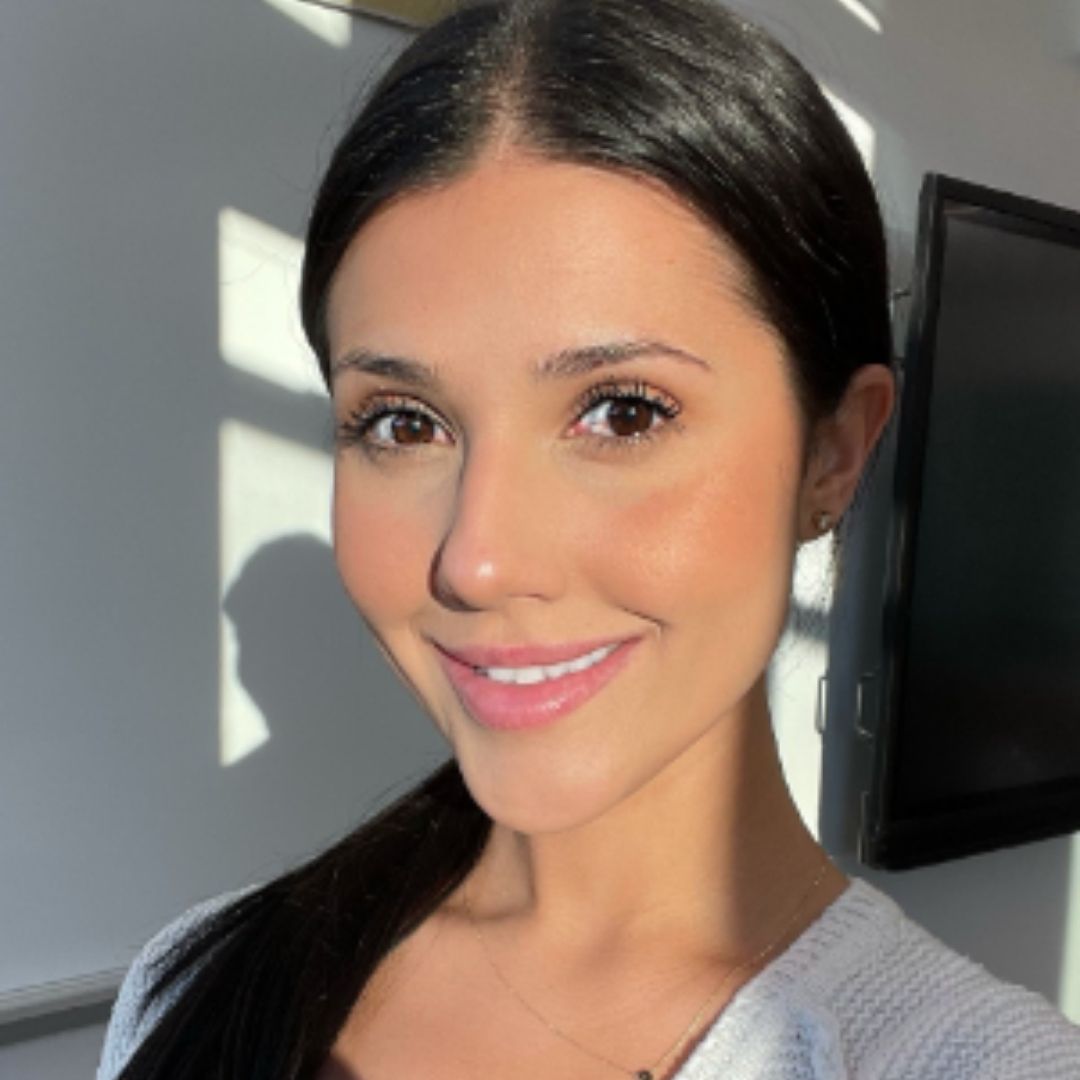

Selver is a speech-language pathologist. She holds her Clinical Certificate of Competence (CCCs) from the American Speech-Language-Hearing Association (ASHA), New York State Speech-Language Pathology license, certificate as a Teacher Students with Speech and Language Disabilities (TSSLD), and is certified in Bilingual Education Assessment – Turkish (BEA). She received her B.A. in Communication Sciences and Disorders from Brooklyn College – City University of New York and her M.S. in Speech-Language Pathology from Long Island University – Brooklyn.
In addition to working in private practice, Selver is a speech-language pathologist at the Department of Education. Selver’s experience working in the Department of Education helps her align her client therapy goals to all areas of her clients’ academic and social lives.
Selver worked clinically in various settings, including home-based (pediatric and geriatric populations), preschool, elementary school, middle school, and clinics. Selver is experienced working with various speech and language difficulties, including expressive and receptive language, phonological processes, articulation, reading/writing skills, Autism Spectrum Disorders, apraxia, dysarthria, and aphasia. Selver is also certified in Lively Letters, a research-based program to teach children letter to sound correlation effectively. Her upbeat and encouraging guidance is appreciated by the clients she serves.
Selver’s clinical expertise is with children with speech and language delays and children diagnosed with Autism Spectrum Disorder (ASD). Selver has obtained certifications in various areas such as LSVT LOUD (Parkinson/voice disorders), FEES, and MBSIP (swallowing disorders).
LOCATION: BROOKLYN: Park Slope, Windsor Terrace, Carroll Gardens MANHATTAN: Upper West Side, Upper East Side LONG ISLAND: Commack, Roslyn, Dix Hills, Deer Park, Smithtown, Northport, Huntington, Babylon, Melville
TYPE OF SERVICES: Individual Therapy, Group Therapy Individual Therapy, group (2-3 children), speech-language evaluations, parent consultations
EXPERTISE: Early Speech and Language Development, Pre-language Skills, Autism Spectrum Disorder, Social Communication (Pragmatic Language), Expressive/Receptive Language Delays, Articulation/Phonological disorders, Reading Intervention, Floortime therapy, Adult aphasia and apraxia
AGES: Birth through Elementary School, Adult
Julia W.
M. A., CCC-SLP, SPEECH-LANGUAGE PATHOLOGIST
Julia W.
M. A., CCC-SLP, SPEECH-LANGUAGE PATHOLOGIST


Julia C. Wolfe is a New York State licensed speech-language pathologist with ten years of practical experience. She holds a Certificate of Clinical Competence (CCCs) from the American Speech and Hearing Association (ASHA). Julia completed her bachelor’s degree in Speech-Language Pathology from the City University New York (CUNY) with an emphasis in Early Childhood Special Education and Children Studies and her master’s degree in Speech-Language Pathology from Lehman College, CUNY.
Since 2012, Julia has worked with clients across the entire lifespan in various settings, including home-based services, telehealth, private and public school-based services, and has provided services for children and adults in outpatient rehabilitation centers and adult assisted living facilities in the New York City area
In her years as a speech-language pathologist, Julia has pursued continued education and training in the areas of autism spectrum disorders, articulation disorders, dysphagia, language development, and sensory disorders. Additional training includes Sequential Oral-Sensory (SOS) Approach to Feeding, PROMPTs for Restructuring Oral Muscular Phonetic Targets (PROMPT), Social Thinking curriculum, and Zones of Regulation.
Julia is an enthusiastic, insightful, and thoughtful therapist who believes that play and pre-literacy skills are critical to speech and language development of young children. She specializes in treating young children (0-3 years old) in NYC Early Intervention Program, working alongside families of children with a variety of diagnoses including autism spectrum disorders, apraxia of speech, receptive/expressive language delays, articulation and phonological delays, social communication deficits, and feeding difficulties secondary to sensory processing disorder, prematurity, cleft palate, GERD, and Down syndrome. Julia also works with school-age children (3-21 years old) in CPSE and CSE programs and has experience working with students with learning disabilities, dyslexia, reading and auditory comprehension, and expressive and receptive language delays. She believes in meeting students where they are and building on their expressive language, literacy, and language comprehension skills through parent coaching and explicit instruction in phonological and phonemic awareness, knowledge of print, narrative structure, and reading fluency.
Julia is skilled in diagnosing, developing, and implementing treatment plans and her philosophy and approach to treatment is both client and family-centered and encourages family/caretaker involvement at all stages of intervention. Julia believes in building a warm and caring learning environment and utilizing a multisensory approach to treatment. Julia’s experience also extends to treating adults with speech, language, pragmatics/social communication, cognitive communication, motor speech, and swallowing disorders. She lives with her family in Brooklyn, NY.
LOCATION: Tele-practice; Brooklyn: Crown Heights, Prospect Heights, Park Slope, Prospect Park West, Fort Greene, Clinton Hills, additional areas on a case-by-case basis.
TYPE OF SERVICES: Individual therapy, speech-language evaluations, parent consultations and trainings.
EXPERTISE: Autism spectrum disorders, articulation delays, phonological disorders, expressive/receptive language delays, late talkers, motor speech disorders, pediatric feeding, play/social communication, reading/auditory comprehension.
AGES: birth through 21
Rebecca K.
M.S. CCC-SLP, SPEECH LANGUAGE PATHOLOGIST
Rebecca K.
M.S. CCC-SLP, SPEECH LANGUAGE PATHOLOGIST


Rebecca is a New York State licensed Speech Language Pathologist and a certified Teacher of Students with Speech and Language Disabilities. She holds a Certificate of Clinical Competence from the American Speech-Language-Hearing Association (ASHA). Rebecca earned her Masters of Science degree in Speech Language Pathology at Cincinnati University and holds a Bachelor of Arts degree in Psychology from Excelsior College. She has been trained in Level 1 PROMPT (PROMPTs for Restructuring Oral Muscular Phonetic Targets) and has experience with the Sounds in Motion approach to literacy.Rebecca utilizes both techniques to enhance traditional articulation therapeutic practices. Rebecca has had training and hands-on experience in Applied Behavioral Analysis (ABA) and the use of behavioral techniques to promote learning. Rebecca has been practicing speech language pathology for over 5 years specializing in children with autism. She has comprehensive expertise assessing and providing treatment for early childhood development/school-age language disorders in one to one and small group settings to children and early adolescents. Rebecca specializes in facilitating the development of expressive and receptive language, problem solving skills, reading comprehension skills , narrative skills, auditory processing skills, language processing skills, and pragmatic language use. Rebecca's sessions reflect her commitment to providing clinical excellence in the areas of evaluative and therapeutic procedures. She tailors her teaching methods to each child's unique needs and focuses sessions on creating a fun, motivating, engaging and challenging environment to realize the goal of advancing each child to reach his/her potential.
LOCATION: Brooklyn: (Midwood, Park Slope, Kensington, Bensonhurst, Flatbush, Other Brooklyn locations on a case-by-case basis.
TYPE OF SERVICES: Individual therapy, Speech/Language Evaluations, Parent Consultations.
EXPERTISE: Language based disorders, expressive/receptive language delays, reading comprehension, social-pragmatic language skills, auditory processing, executive functioning, and narrative skills.
AGES: Pre-K through early adolescence.
Allison P.
M.S. CCC-SLP, TSSLD, SPEECH LANGUAGE PATHOLOGIST
Allison P.
M.S. CCC-SLP, TSSLD, SPEECH LANGUAGE PATHOLOGIST


Allison is a New York State certified Speech-Language Pathologist currently working for the NYC Department of Education. She holds her Certificate of Clinical Competence from The American Speech-Language Hearing Association (ASHA), her New York State Speech-Language Pathology license and is a Teacher of the Speech and Language Disabled (TSSLD.) She received her B.S. in Child Development from Vanderbilt University in Nashville, TN, and her M.S. in Communication Sciences and Disorders from Massachusetts General Hospital Institute of Health Professions (MGH IHP) in Boston, MA. She has worked in a variety of settings including general education, special education, and private practice. Allison has experience working with preschool through high school age students with a wide range of speech-language difficulties, including autism spectrum disorders, articulation/phonological delays, and receptive/expressive language delays and disorders. Furthermore, Allison has additional masters level literacy training.
She adapts and modifies a reading curriculum to make it more appropriate for each student's learning style, specifically through improving phonological and phonemic awareness (critical literacy component for teaching children how to effectively read), linking letter to sound awareness (developing phonics and spelling), teaching reading comprehension and organizational writing strategies, and strengthening the overall link between spoken and written language.
Allison also has experience and training in developing augmentative and alternative communication (AAC) systems, including Picture Exchange Communication Systems (PECS) and speech generating devices (Dynavox, Vantage, Tobii) and applications (Proloquo2go, TouchChat, LAMP Words for life). In addition, Allison is a certified DIR/ Floortime provider. As a therapist, Allison creates fun, engaging, and effective activities carefully incorporating the interests of her clients as well as technology in order to develop language and literacy skills. Allison also emphasizes the importance of collaboration with parents and teachers when working with students.
LOCATIONS: Brooklyn: Bay Ridge, Bensonhurst; Manhattan: West Village, Lower East Side, Gramercy etc.
TYPE OF SERVICES: Individual therapy, small group instruction, parent consultation
EXPERTISE: Autism Spectrum Disorders, Literacy disorders, Augmentative and Alternative Communication
AGES: Birth through middle school
Michelle L.
M.S. CCC-SLP, SPEECH LANGUAGE PATHOLOGIST
Michelle L.
M.S. CCC-SLP, SPEECH LANGUAGE PATHOLOGIST


As a licensed and certified speech-language pathologist, Michelle has a variety of clinical experiences helping children, adolescents, and young adults. Michelle received her undergraduate degree at the University of Delaware in cognitive science with a concentration in speech-language pathology, and her graduate degree is in speech and language pathology from Hunter College. She is level one PROMPT-trained. Additionally, Michelle is completing her final year in New York Law School s part-time evening program to obtain her Juris Doctor degree. She intends to participate in the field of special education law alongside her work as a speech-language pathologist.
Her professional experiences include working at a preschool for children with Autism Spectrum Disorder, working at a variety of sensory gyms in Manhattan with children ages 2-9, leading social groups to facilitate pragmatic language skill development, and providing home and clinic-based early intervention sessions.
For the past two years, Michelle has worked with several young adults diagnosed with Autism in a clinical setting providing transitional services, with a focus on job-related skills, and language skills within activities of daily living to foster these students ability to participate in society independently.
Michelle has worked with children, including those under three years of age, on the autism spectrum, children with auditory processing delays, pragmatic language delays, attention deficit disorder, literacy delays, delayed executive functioning skills, and general receptive/expressive language delays. Michelle has experience facilitating writing skills (organizational skills, proofreading skills, idea expansion), and reading comprehension skills (vocabulary, inferencing, sequencing). Michelle has also provided home-based speech therapy for several adolescents focusing primarily on reading comprehension skills, and organizational skills in writing.
LOCATION: Brooklyn: Brooklyn Heights, Park Slope, DUMBO, Clinton Hill Manhattan: Financial District, Tribeca, Chelsea, West Village, SoHo, Union Square, Upper East Side, Upper West Side, Midtown East, Hell's Kitchen. Jersey City and Hoboken.
TYPE OF SERVICES: Individual therapy, speech and language evaluations and therapy
EXPERTISE: Speech-language delays, articulation/phonology disorders, pre-literacy and literacy skills, receptive/expressive language disorders, auditory processing disorder, narratives skills, and social-pragmatic weaknesses.
AGES: Infant through 21 years
Christina C.
CCC- SLP NEW YORK STATE LICENSED SPEECH-LANGUAGE PATHOLOGIST
Christina C.
CCC- SLP NEW YORK STATE LICENSED SPEECH-LANGUAGE PATHOLOGIST


Christina is a New York State licensed Speech-Language Pathologist who is a dual alumna of New York University from where she received her undergraduate degree in Acting and a Master’s degree in Speech-Language Pathology. She holds her Certificate of Clinical Competence in Speech-Language Pathology (CCC-SLP) from the American Speech-Language-Hearing Association (ASHA). She holds certification in Lee Silverman Voice Treatment and SPEAK OUT!. Since graduating, Christina has completed a specialized medical fellowship in Voice, Swallow, and Upper Airway Disorders at the University of Rochester Medical Center, Voice & Swallow Center. Following the completion of her fellowship, she has worked at different New York hospitals in a variety of settings including both acute care and outpatient settings. These experiences include level IV Neonatal Intensive Care Unit (NICU), Pediatric Intensive Care Unit (PICU), cardiac unit, and oncology unit. Previous hospital experience includes evaluation and treatment of adults and pediatric patients with voice and upper airway disorders (PVFM, chronic cough, etc.) as well as medically complex, medically-based feeding/swallowing disorders, and sensory and behaviorally based feeding difficulties.
Christina prides herself on a patient-center and holistic approach to assessment and treatment. She is aware that every patient and every family has different needs and goals; her goal as a clinician is to provide evidence-based therapy, extensive education, and provide empowerment in order to achieve the best, most functional outcomes. She believes in a patient-led approach to voice, feeding, swallowing, and upper airway therapy. There is no denying Christina’s passion and love for her work as a medical Speech-Language Pathologist!
LOCATION: Brooklyn: Greenpoint, Williamsburg, Park Slope; Eastern Manhattan; Queens: Long Island City
TYPE OF SERVICES: Individual voice therapy, individual upper airway therapy, feeding/swallowing evaluation, and treatment, parent consultations
EXPERTISE: Feeding and Swallowing Disorders, Oral Motor and Feeding Skill delays, oropharyngeal dysphagia, infant feeding and swallowing adult swallow, adult & pediatric voice disorders (e.g. muscle tension dysphonia, vocal tremor, performing voice, vocal fold lesions, vocal fatigue, etc.), and upper airway disorders (paradoxical vocal fold motion, chronic cough/chronic throat clearing, laryngospasms)
AGES: across the lifespan, from infants to adults
Sarah E.
MS., CCC-SLP, SPEECH LANGUAGE PATHOLOGIST, NEW YORK STATE LICENSED CLINICIAN
Sarah E.
MS., CCC-SLP, SPEECH LANGUAGE PATHOLOGIST, NEW YORK STATE LICENSED CLINICIAN


Sarah is a New York State licensed clinician who received her undergraduate degree from CUNY Brooklyn College and a Master’s degree in Communication Sciences and Disorders from Teachers College, Columbia University. She holds her Certificate of Clinical Competence in Speech-Language Pathology from the American Speech-Language-Hearing Association (ASHA) and is a recipient of ASHA’s Award for Continuing Education. Sarah is a member of ASHA’s Special Interest Group in Swallowing and Swallowing Disorders and the National Association of Neonatal Therapists (NANT). She serves as an Adjunct Professor/Clinical Educator at New York Medical College training post-graduate clinicians in the diagnosis and treatment of pediatric feeding/swallowing disorders.
Sarah has received extensive post-graduate training and education in the diagnosis and treatment of feeding/swallowing disorders in infants, children, and adolescents. Sarah has worked in the Neonatal Intensive Care Unit (NICU) since the beginning of her career.
She has also worked with pediatric patients admitted to the hospital who present with diagnoses related to airway disorders, respiratory/pulmonary disorders, gastrointestinal disorders, and congenital/acquired neurogenic disorders. Sarah has also worked with patients in the outpatient setting who present with sensorimotor and/or behavioral feeding/swallowing disorders. She has treated babies who struggle with bottle feeding, helped transition infants to purees and solids, worked on introducing PO feeding to medically complex patients, and helped patients expand their food repertoires and transition to age-appropriate textures/consistencies. Sarah considers infant feeding/swallowing to be a specific area of passion, but she finds great pleasure in helping all children/families establish and reach their respective goals.
Sarah believes in utilizing evidenced-based approaches in the treatment of her patients, carefully making recommendations that are supported by current literature to curate realistic client-centered goals and optimize care. She aims to collaborate with other interdisciplinary professionals and will work with her patients and families to identify the necessity of other specialists if/when needed. Sarah prioritizes family training and education to ensure family independence and carry-over of skills into daily life. She truly enjoys celebrating wins of all sizes with the clients and families she cares for.
LOCATION: BROOKLYN: Bay Ridge, Dyker Heights, Sunset Park, Gravesend, Bensonhurst, Sheepshead Bay, Borough Park, and more
STATEN ISLAND
TYPE OF SERVICES: Individual therapy, feeding/swallowing evaluations, and treatment, parent consultations
EXPERTISE: Feeding and swallowing disorders, sensorimotor or behavioral feeding delays/disorders, oropharyngeal dysphagia, infant feeding and swallowing
AGES: birth through adolescence
Marie A.
MS CCC-SLP, TSSLD, SPEECH LANGUAGE PATHOLOGIST
MARIE A.
MS CCC-SLP, TSSLD, SPEECH LANGUAGE PATHOLOGIST


Marie is a New York State certified speech and language pathologist holding a TSSLD license. Marie received her BS from New York University and her MS from Northeastern University. She holds a Certificate of Clinical Competence from the American Speech and Hearing Association. Marie is a tenured speech and language pathologist with the NYC board of education. She has worked for the past nine years in an elementary and middle school. She also has six years of experience working with the adult population.
Currently, Marie services students from 3K to 8th grade. Her therapy targets expressive/receptive language delays, fluency, articulation disorders, phonological disorders, learning disabilities, apraxia, ADD and ADHD, pragmatic and social skills, executive functioning disabilities, literacy, and reading and writing deficits. Marie is trained in multiple reading and writing programs such as Recipe for Reading, Fundations, Lively Letters, Sounds in Motion, The Writing Revolution, and other Orton-Gillingham approaches. She provides dynamic in-person and remote speech and language services.
Marie also has six years of experience working with adult populations in various settings, such as hospitals, skilled nursing facilities, and homecare. Her therapy involves dysphagia, aphasia, cognitive-communication deficits, traumatic brain injury, dysarthria, apraxia, and voice. She also performs evaluations and screenings. Marie is truly passionate about speech therapy and approaches it with warmth and enthusiasm!
HOURS: Monday-Friday flexible
LOCATION: Brooklyn (Park Slope, Windsor Terrace, Sunset Park, Gowanus)
TYPES OF SERVICES: Individual therapy, group therapy, speech-language evaluations, screenings, parent consultations/trainings, remote therapy
EXPERTISE: language and literacy, vocabulary, articulation and phonological disorders
AGES: Birth-Adults
PAYMENT: Private Pay, Out-of-Network
Aileen S.
Speech-Language Therapist, M.S. CCC-SLP, TSSLD
Aileen S.
Speech-Language Therapist, M.S. CCC-SLP, TSSLD
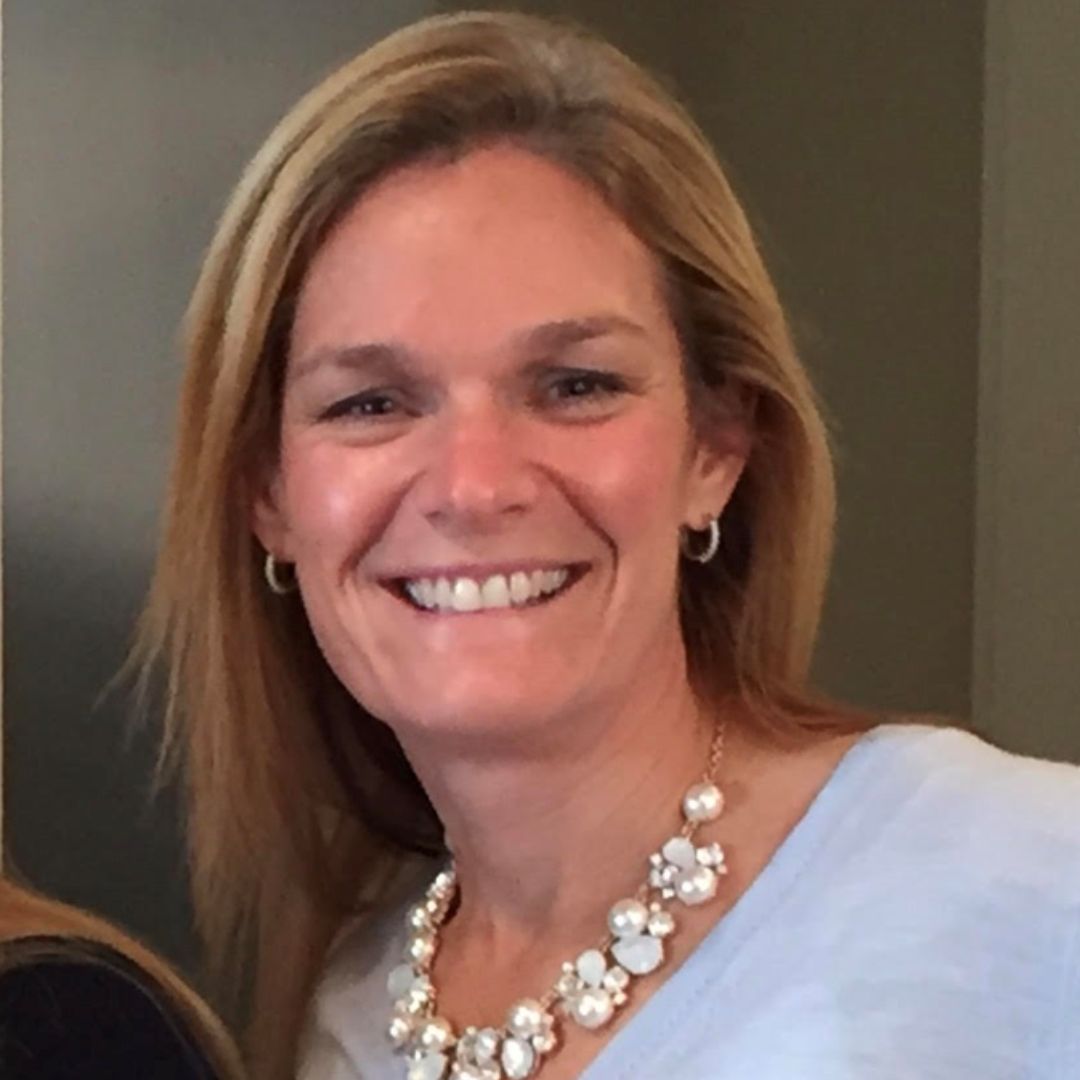

Aileen is a New York State licensed Speech-Language Pathologist and a certified Teacher of Speech and Hearing. She holds a Certificate of Clinical Competence from the American Speech-Language and Hearing Association (ASHA). Aileen has a bachelor’s degree in Special and Elementary Education from Providence College, a master’s degree in Communication Disorders from Southern Connecticut State University, and an Advanced Certificate in Educational Leadership and Administration from St. Rose College. Aileen’s career has expanded to over 20 years with various therapeutic settings including Blythedale Children’s Hospital in Valhalla, NY, the New York City Department of Education, pre-school home-based services, Early Intervention home-based services, and private practice. She currently works as a Supervisor of Speech Improvement for the New York City Department of Education. In her current position, Aileen oversees the implementation of speech and language services for students across parts of Manhattan and Brooklyn.
She also supports her staff through clinical observations, mentoring, provision of professional learning opportunities, and supporting the implementation of literacy programs. Literacy programs are designed to target grades K – 2 by identifying struggling readers and providing them with evidence-based interventions that develop early literacy skills such as phonemic and phonological awareness. Interventions include Sounds in Motion, Sound Sensible, and SPIRE. The goal of the program is to identify struggling readers early and bring them to grade level as quickly as possible. Aileen has presented on a variety of topics including Vocabulary Intervention for Adolescents, Service Delivery Options, the Role of the SLP in Schools, and Evidence-Based Best Practices for Speech and Language Therapy.
Aileen works with children from birth through adolescents with specialties in the areas of feeding and swallowing disorders (picky eaters, behavior disorders), early and adolescent literacy, executive functioning, ADHD, articulation, phonological disorders, expressive and receptive language delays and disorders, and Traumatic Brain Injury (TBI). She is trained in various treatment methodologies including SOS Approach to Feeding (SOS), a treatment approach that considers all of the underlying factors of feeding such as sensory processing, behavior, cognition, nutrition, and environment. Sounds Sensible, SPIRE and Sounds in Motion are evidence-based programs that target phonological and phonemic awareness in grades pre-K – 2nd grade. Basic Writing Skills target the organization and expansion of writing skills for students in elementary through high school.
Aileen’s approach to therapy is child-centered. Young children learn and grow best through guided exploration. When working with middle and high school students Aileen encourages these clients to take ownership of their therapy by communicating their challenges and helping them to set individual goals that they work to achieve together. Therapy includes academics and also individual interests to keep therapy motivating. Her goal is to have the child reach his or her highest potential with their speech, language, feeding, and literacy development. She partners with families so they are integrated into the therapy process.
In our new reality of COVID, remote learning and social distancing Aileen is prepared to provide teletherapy via online platforms including ZOOM, MS Teams, Google Meet, and FaceTime using a variety of practices and techniques for remote instruction. While the physical space may be different the principles that drive therapy remain the same regardless of location.
LOCATION: Brooklyn: Midwood, Marine Park, Flatbush, Mill Basin, Bergen Beach, Flatlands Queens: Neponsit, Belle Harbor, Rockaway Park, Broad Channel, Howard Beach, Lindenwood
TYPE OF SERVICES: Individual therapy, small groups, evaluations, and parent consultation and training
EXPERTISE: Feeding and swallowing, early literacy, speech and language delays, executive functioning and organization, ADHD, TBI
AGES: Birth through high school
Karen M.
M.S., CCC-SLP, TSSLD
Karen M.
M.S., CCC-SLP, TSSLD


Karen is a New York State licensed Speech-Language Pathologist who holds her Certificate of Clinical Competence (CCC) from the American Speech-Language-Hearing Association (ASHA). She is certified as a Teacher of Students with Speech and Language Disabilities (TSSLD). She holds state licenses for Speech-Language Pathology in California, Maine, Pennsylvania, Idaho, Michigan, Missouri, Kentucky, and Washington. She received her B.A. and M.A. in Communication Disorders from California State University at Long Beach. Since that time, she has been a 3-time recipient of the ASHA Award for Continuing Education. She is an experienced telepractioner, having worked exclusively in telepractice since 2011. She is passionate about telepractice as a therapy model that is engaging and immensely effective. She has provided speech and language services to children from birth through preschool utilizing telepractice (last 9 years) and in-person (over 20 years). She values building impactful relationships with families to achieve their goals.
Additionally, her experience includes working with school-aged children with a broad range of speech-language difficulties, including autism spectrum disorders, social/pragmatic delays/disorders, articulation/phonological delays, and receptive/expressive language delays/disorders.
She is resolute that learning should be rewarding and engaging and works to make each session effective and gratifying for the child. If you assist a child to love to learn, you set them up for a life of success. Build new skills from a place of strength and interest, rewarding success along the way.
Beginning in 2000, Karen expanded her scope of practice to work with adult professional voices to improve voice quality and remediate vocal dysfunction including vocal nodules.
LOCATION: Brooklyn, Manhattan, Long Island, Staten Island, Queens, Westchester: services provided through telepractice
TYPE OF SERVICES: Speech and language individual therapy, group (2 children), speech-language evaluations, parent consultations, Adult and child speech and language individual therapy.
EXPERTISE: Speech-language delays, autism spectrum disorders, early intervention, adult speech and language (CVA rehab and Parkinson’s), voice disorders.
AGES: Birth to 21, adult speech and language (CVA rehab and Parkinson’s), voice disorders.
Alex P.
Speech-Language Therapist, M.S. CCC-SLP, TSSLD
Alex P.
Speech-Language Therapist, M.S. CCC-SLP, TSSLD


Alex received her Master of Arts degree in Communication Sciences and Disorders from St. John’s University. She is a certified SLP licensed to practice in New York, California, and Florida; and she holds her Certificate of Clinical Competence from The American Speech-Language Hearing Association (ASHA). She works with young children (0-7) and adults. Alex works on feeding and language skills with her younger clients. She also specializes in fluency, apraxia of speech, and aphasia. Prior to this, Alex provided speech-language therapy to children on the autism spectrum; and accent modification in Barcelona, Spain. She started her career working as a school-based SLP, creating and teaching social skill classes for adolescents.
Alex provides therapy in both English and Spanish. She is both PROMPT (Prompts for Restructuring Oral Muscular Phonetic Targets) trained and trained in DTTC (dynamic temporal and tactile cueing) for treating children with apraxia and articulation disorders.
When treating individuals with sensory processing disorders and feeding delays, Alex follows the SOS (Sequential Oral Sensory) approach to feeding therapy. Aside from speech therapy, Alex has experience working with typically developing children, having taught English to toddlers in Spain and used dance in toddler development for over 10 years. These experiences have helped craft Alex’s approach as a therapist as she is able to benchmark against the speech and language milestones of typically developing children. It is important for speech pathologists to understand the progression of typically developing children so that they can assess and set appropriate goals for therapy. It is Alex’s mission to help families and clients feel empowered to improve language skills at home and feel more confident.
LOCATION: All of NY, CA, and FL (teletherapy!)
TYPE OF SERVICES: Individual therapy, group, speech-language evaluations, parent consultation, family coaching
EXPERTISE: Speech-language delays, feeding problems/ picky eaters, aphasia, childhood apraxia of speech, fluency, social disorders, accent modification
AGES: all ages (birth through geriatrics)
Lindsay S.
Speech-Language Therapist, M.S. CCC-SLP, TSSLD
Lindsay S.
Speech-Language Therapist, M.S. CCC-SLP, TSSLD
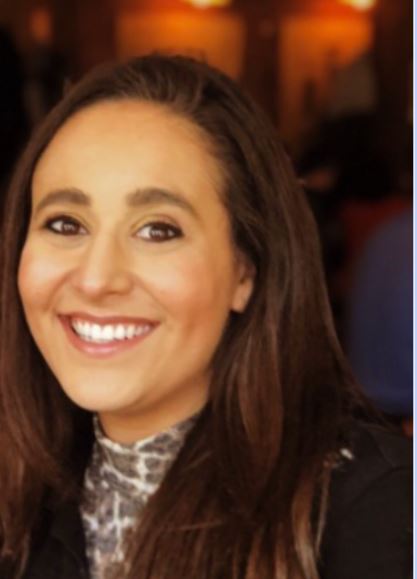

Lindsay is a New York State licensed Speech-Language Pathologist and holds the New York State Teacher of Students with Speech and Language Disabilities professional certificate. She holds her Certificate of Clinical Competence in Speech-Language Pathology (CCC-SLP) from the American Speech-Language-Hearing Association (ASHA) and is PROMPT (prompts for restructuring oral motor phonetic targets) trained. Lindsay graduated with a Bachelor of Science in Communication Science and Disorders from Penn State University in 2016 and a Masters of Education in Speech-Language Pathology from Monmouth University in 2018.
Lindsay has experience working in private schools, public schools, charter schools, outpatient rehabilitation centers, and hospitals. Currently, Lindsay works at a private special education school located on the Upper West Side, where she treats students with diverse diagnoses. Lindsay has experience working with students on The Autism Spectrum as well as students with Down Syndrome, Cerebral Palsy, Cortical Visual Impairment, Attention Deficit Disorder, and Speech and Language Impairment.
She takes a holistic approach to therapy and loves to foster an environment where each child feels comfortable taking risks and believing in themselves. Lindsay has experience working with students to strengthen social skills through Social Thinking curriculum by integrating perspective taking activities, literacy skills through phonological awareness intervention, multimodal articulation including PROMPT, fluency, as well as targeting expressive and receptive language skills. Lindsay helps clients learn strategies to help them follow multi step directions and teaches quantitative and qualitative concepts in a variety of play opportunities. To target reading comprehension, Lindsay teaches multiple choice question strategies, has students go on “information scavenger hunts” to work on identifying salient information in a body of text (through highlighting, underlining, etc), and introduces context clues to make inferences. When targeting expressive language, Lindsay focuses on grammar based on each client’s needs within oral and written modalities, helps improve sentence structure, introduces transition words, and targets grade level vocabulary by providing graphic organizers to allow clients with multiple opportunities to be exposed to novel vocabulary. Lindsay also has experience helping clients improve their organization and executive functioning skills by discussing necessary steps to complete activities of daily living, making lists (e.g. packing for a trip, preparing for a trip to the grocery store) and introducing categories. Lindsay is enthusiastic and is passionate about collaborating with occupational therapists, physical therapists, teachers, and especially families to promote generalization of skills across all settings to allow children to reach their greatest potential. When working with younger clients, Lindsay utilizes play and each individual’s personal interests to keep them engaged and excited throughout therapy sessions. When working with older children, Lindsay helps to determine if the child’s greatest language need lies within academics or participating in the community and plans with families accordingly.
LOCATION: Brooklyn – Williamsburg and Greenpoint
Manhattan – Upper West Side, Gramercy, Union Square, East Village, Tribeca, Chelsea, West Village, Soho, Flatiron, Hell’s Kitchen
TYPE OF SERVICES: Individual therapy and group therapy (2-3 children)
EXPERTISE: Early literacy, speech and language delays, social language skills (pragmatics), reading comprehension, oral and written language, and executive functioning skills.
AGES: 2-21
Lauren H.
CCC-SLP, TSSLD
Lauren H.
CCC-SLP, TSSLD


Lauren is a Pennsylvania licensed speech-language pathologist. She received her Bachelor of Arts in Communication Science and Disorders from The University of Pittsburgh in 2016. Additionally, she received her Master of Arts in Speech-Language Pathology from St. John’s University in 2018. Lauren holds a certificate in American Sign Language and has extensive experience working with Deaf and hard-of-hearing children.
Lauren gained experience and knowledge through fieldwork during her undergraduate and graduate studies in a variety of settings, including schools (public, private, and charter), private clinics, inpatient and outpatient rehabilitation, and hospitals. Lauren has found her passion for working with the pediatric population as she currently provides Early Intervention services to the birth to 3 population as well as working at a private elementary school and a charter high school in Philadelphia County. She services a wide range of children with various diagnoses including Attention Deficit Disorder, Dyslexia, Autism Spectrum Disorder, Down Syndrome, Williams Syndrome, Selective Mutism, learning disabilities, articulation/phonological disorders, and processing disorders.
Lauren creates individualized treatment plans to improve skills related to receptive, expressive, and pragmatic language skills, as well as articulation, voice, AAC, and pre-literacy/literacy skills. Lauren also helps facilitate reading skills in elementary school children by focusing on prevention, identification, assessment, intervention, monitoring, and follow-up. She provides individual and group therapy and includes families and caregivers in creating therapy goals. Lauren strives to provide personalized, creative, and effective care to maximize each child’s communication abilities. She strongly believes that a multidisciplinary approach is essential to improving speech and language skills in children.
LOCATION: PHILADELPHIA: East Passyunk, Point Breeze, Center City, Old City, Queens Village, Fairmount, Logan Square, Society Hill, Northern Liberties, Fishtown, Rittenhouse, Bella Vista, East Falls, Manyunk, Bala Cynwyd, Bryn Mawr, Havertown, Ardmore, Narberth, Gladwyne, Wynnewood
TYPE OF SERVICES: (in person and remote) Individual therapy, group (2-3 children), speech-language evaluations, parent consultations
EXPERTISE: Speech-language delays, Autism Spectrum Disorder, ADD and ADHD, processing disorders, articulation/phonological disorders, Dyslexia, AAC
AGES: birth through 21
Maria W.
New York State certified and licensed bilingual (Russian/English) Speech Language Pathologist
Maria W.
New York State certified and licensed bilingual (Russian/English) Speech Language Pathologist


Maria is a New York State certified and licensed bilingual (Russian/English) speech-language pathologist. She is a certified Teacher of Students with Speech and Language Disabilities. Maria holds her Certificate of Clinical Competence in Speech-Language Pathology from the American Speech-Language-Hearing Association. She completed her M.S. in Speech-Language Pathology and her B.A. in Communication Sciences and Disorders at CUNY Brooklyn College. Maria holds a combined bachelor’s and master’s degree in Linguistics from a State University in her hometown in Russia.
Maria is currently a full-time speech-language therapist for the NYC Department of Education, providing individual and group therapy for a culturally diverse population of elementary and preschool-age students. Additionally, she works as an Early Intervention provider with 0-3-year-old children with receptive and expressive language delays. Maria has experience working with children with receptive and expressive language delays, Specific language impairment, Autism spectrum disorder, Attention-deficit/hyperactivity disorder, learning disorders, speech sound disorders (articulation and phonology), and fluency.
She is a PROMPT-trained therapist. Maria utilizes multi-modal (visual, auditory, tactile) teaching strategies based on the Orton-Gillingham approach when working on the development of literacy skills (phonics, reading, writing). Maria is skilled in play-based therapy.
Her therapy is characterized by an individualized approach to every client, attention to detail, and functionality of goals as well as genuine care and support.
LOCATION: Manhattan, Brooklyn
TYPES OF SERVICES: Monolingual and bilingual evaluations, individual therapy, group therapy, parent coaching, consultations.
EXPERTISE: Expressive and Receptive Language Impairment, Literacy, Autism Spectrum Disorder, Articulation, Fluency.
Ages: All Ages.
Michelle S.
M.S., CCC-SLP, TSSLD, SPEECH LANGUAGE PATHOLOGIST
Michelle S.
M.S., CCC-SLP, TSSLD, SPEECH LANGUAGE PATHOLOGIST


Michelle is a Speech-Language Pathologist (SLP) who holds her Certificate of Clinical Competence (CCCs) from the American Speech-Language-Hearing Association (ASHA), her New York State Speech-Language Pathology license and is certified as a Teacher of Students with Speech and Language Disabilities (TSSLD). She received her Bachelor’s of Science in Communicative Sciences and Disorders from New York University in 2015 and her Master’s of Science in Speech-Language Pathology at Brooklyn College in 2017.
As a therapist, she has had extensive experience treating speech and language disorders in children aged 3 – 18 in a number of settings including private schools, public schools, charter schools, preschools, home care, universities, and early intervention clinics. Her primary areas of expertise include but are not limited to expressive and receptive language development/disorders, fluency, and literacy disorders.
Michelle is passionate about supporting language development in late talkers. While this and all therapy require an individualized evidence-based treatment approach, Michelle encourages the development of language through a combination of structured stories/reading and play. She assesses the child to determine at what developmental level they are communicating and guides them along their way from gestures, to single words, to word combinations, to phrases, and ultimately communicating with sentences.
Michelle also greatly enjoys supporting students with literacy development by combining explicit teaching of phonological awareness with print knowledge, reading fluency, and narrative structure. She teaches strategies to foster independence and confidence with reading comprehension (vocabulary, inferencing, sequencing, root words, and textual annotations) and executive functioning (time management, sustained attention, planning prioritization, etc..). She supports written language by analyzing the linguistic breakdown of the student’s work to determine what aspect(s) of writing are the most challenging. She then utilizes direct instruction to target the missing foundational elements.
She supports students with fluency challenges by combining a fluency shaping and stuttering modification approach. This method teaches students to reduce negative thoughts and associations with their speech, while simultaneously teaching strategies to gain more control over their fluency. Michelle works closely with students and their families to facilitate the development of communication and academic skills in a fun, creative, and engaging manner to keep them motivated and excited to learn!
Location: Brooklyn: Park Slope, Red Hook, Bay Ridge, Carroll Gardens, etc…
Type of Services: Individual Therapy, Group Therapy (2-3 children), Parent Consultations, and Training
Expertise: Expressive and Receptive Language Disorders, Early and Later Literacy, Speech and Language Delays, Executive Functioning and Organization, Fluency (Stuttering), Bilingual Language Development
Ages: 3 – 14
Emily J.
SPEECH LANGUAGE PATHOLOGIST
Emily J.
SPEECH LANGUAGE PATHOLOGIST


Emily is a New York State licensed Speech-Language Pathologist with over 14 years of experience working with children ages 12 months-12 years in a variety of settings, including public and private schools, private practice, sensory gyms, in-home and teletherapy.
Her expertise lies in early speech and language development, articulation/phonology, expressive and receptive language, pre-literacy and literacy skills (phonological & phonemic awareness, reading and writing), executive functioning, and pragmatic/social skills. As a play-based therapist, Emily believes in following a child’s lead to select therapy materials and activities. She incorporates books, puzzles, toys, and language-based games into therapy sessions to make learning interactive and fun. When working with school-aged children, she includes homework and other schoolwork to assist in the carryover of skills across environments.
Collaboration is extremely important to Emily to provide the best possible support for her clients. She values a team approach, communicating with teachers and other professionals, and equipping parents and caregivers with strategies to implement outside of therapy.
Emily holds a Certificate of Clinical Competence from the American Speech-Language Hearing Association (ASHA). She received a Bachelor of Arts degree in Child Development from the University of Wisconsin-Madison and a Master’s degree in Communication Disorders from the University of Texas-Dallas, and has pursued continuing education and training in the Orton-Gillingham approach to reading and the Social Thinking curriculum. In addition, she has completed courses in expository writing instruction at the Windward Teacher Training Institute.
LOCATION: Manhattan (Upper West Side, Upper East Side, Midtown, Chelsea, Murray Hill, Gramercy, Stuytown, East Village, Lower East Side, Battery Park), Queens (Astoria, Long Island City, Sunnyside, Woodside, Elmhurst, Jackson Heights), Brooklyn (Greenpoint, Williamsburg, Bed-Stuy, Clinton Hill)
TYPE OF SERVICES: Speech-Language Evaluations, Individual Therapy, Group Therapy (2-3 children), Parent Consultations and Trainings, Teletherapy
EXPERTISE: Early speech and language development, Articulation and phonological disorders, Expressive/receptive language disorders, Pre-literacy skills (phonological & phonemic awareness), Literacy skills (Reading comprehension: vocabulary, predicting and inferring, sequencing; Writing: brainstorming/organizing thoughts, idea expansion, proofreading and editing), Executive functioning difficulties, and Pragmatic/social skills weaknesses
AGES: 12 months-12 years

Valerie received a bachelor’s degree in Communication Sciences and Disorders from Adelphi University in 2010. In 2012, she earned a Master of Science degree in Speech and Language Pathology from Teachers College, Columbia University. As a Speech and Language Pathologist (SLP) working for District 75 since 2012, Valerie actively collaborates with teachers and parents to support the communication needs of her students both in the school building and beyond. Her passion for advocacy and collaboration led her to pursue and obtain an additional Master’s Degree in Educational Leadership in 2021.
Her work with students in the Special Education District of the New York City Department of Education, is driven by the George Evans quote: “all students can learn; just not on the same day or in the same way.” During her tenure as an SLP, she has primarily supported elementary school students diagnosed with Autism Spectrum Disorders.
She has also worked in the New York State Early Intervention Program, training parents and providing speech and language services to children in the birth to 3 population. In addition to being a New York State licensed Speech and Language Pathologist, she is certified as a Teacher of Students with Speech and Language Disabilities (TSSLD). She holds a Certificate of Clinical Competence (CCC) from the American Speech and Hearing Association (ASHA). Valerie has received training in Alternative and Augmentative Communication (AAC) systems, Sounds in Motion, Picture Exchange Communication System (PECS), and Therapeutic Crisis Intervention Strategies. In addition to being a passionate SLP, Valerie is also a proud wife and new mother to her two beautiful children.
Location: Brooklyn: Ditmas Park; Park Slope; Kensington; Windsor Terrace; Flatlands
Type of Services: Speech and Language Evaluations; Parent Consultation; Individual Therapy
Expertise: Autism Spectrum Disorders; Speech and Language Delays; Augmentative and Alternative Communication.
Ages: Birth through elementary.
Ben I.
M.S., CCC- SLP, TSSLD, SPEECH LANGUAGE PATHOLOGIST
Ben I.
M.S., CCC- SLP, TSSLD, SPEECH LANGUAGE PATHOLOGIST
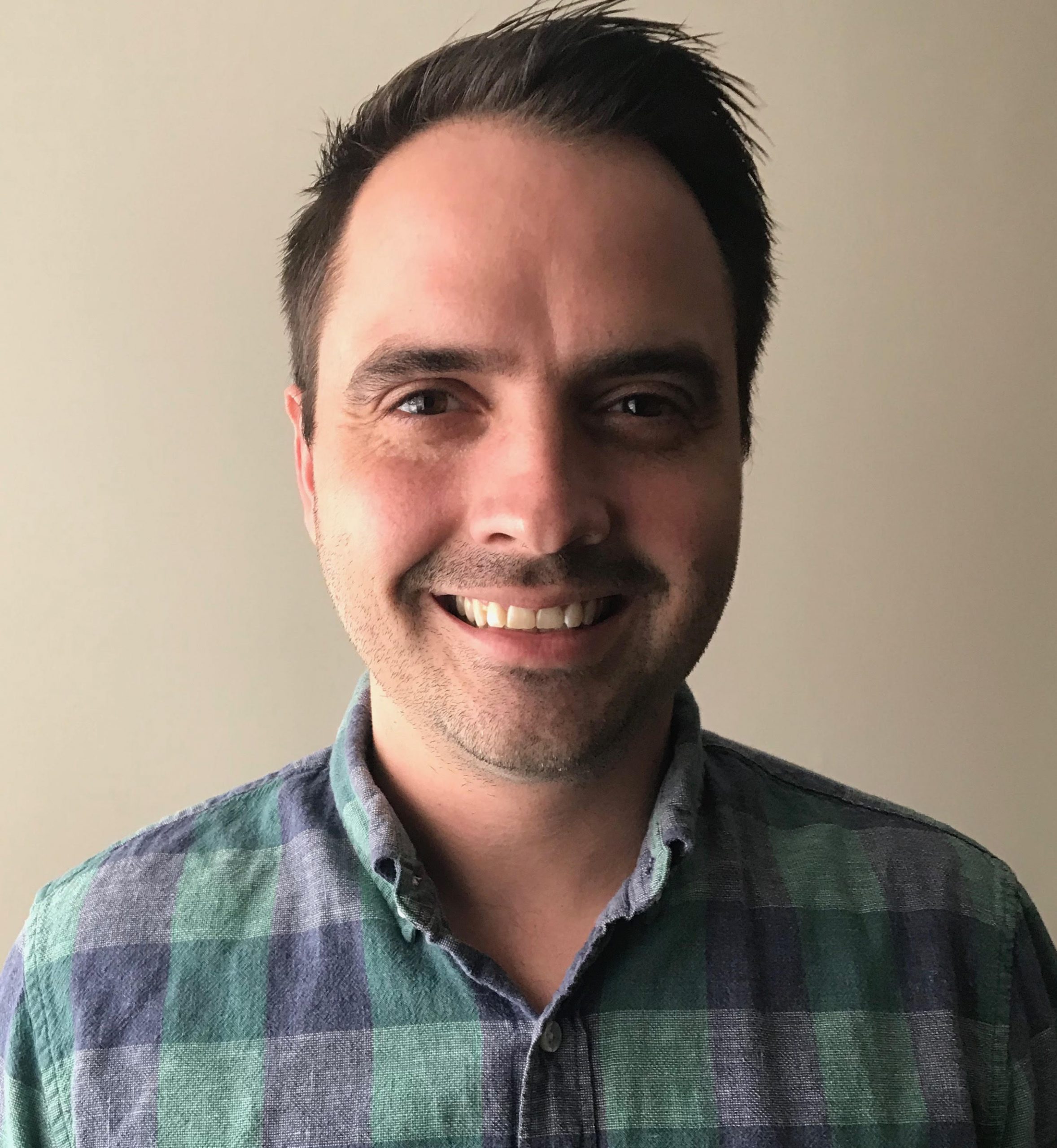

Ben is a New York State licensed Speech-Language Pathologist who received his Master’s in Speech-Language Pathology from George Washington University. He holds his Certificate of Clinical Competence in Speech-Language Pathology (CCC-SLP) from the American Speech-Language-Hearing Association (ASHA), and is Prompt-trained.
With over five years of experience in home-based Early Intervention and private therapy, Ben specializes in pediatrics. He has expertise in articulation, expressive and receptive language disorders, language delay and its disorders, speech sound disorders, feeding and swallowing cases, and children with Autism Spectrum Disorder. He also specializes in early childhood behavioral feeding difficulties, sensory-based feeding issues, and swallowing disorders.
LOCATION: Brooklyn: Windsor Terrace, Park Slope, Cobble Hill, Carroll Gardens, Kensington, Bay Ridge, Sunset Park, Midwood, and Prospect Lefferts Gardens.
TYPES OF SERVICES: Individual therapy, group (2-3 children)
EXPERTISE: Early Speech and Language Development, Pre-language skills, Autism Spectrum Disorder, Social Communication (Pragmatic Language), Feeding, Expressive/Receptive Language Delays, Articulation, Apraxia of Speech, & Pragmatic/Social Skills.
Caroline K.
Masters degree in Speech Language Pathology and Certified Orofacial Myologist
Caroline K.
Masters degree in Speech Language Pathology and Certified Orofacial Myologist
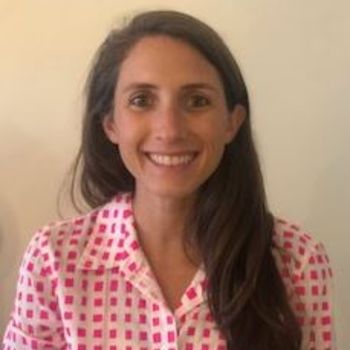

Caroline graduated with her masters degree in speech language pathology from Kean University and is licensed to practice in both NJ and NY. She is a certified orofacial myologist and has completed various additional training for oral motor therapy. Caroline has a love for learning and continuing her education and has also completed the following training: PROMPT Level 1, Lidcombe therapy for fluency, SOS Approach to feeding, along with various other feeding courses, and social skills courses including Social Thinking (r). She believes in a holistic, family centered approach to therapy and has therefore completed courses in mindfulness for children and is a Certified Holistic Nutrition Consultant. With over 7 years of experience in the field, Caroline has worked in various settings including a specialized school for children with brain based disorders, a Montessori school, private practice, and teletherapy. She has extensive background in working with children with articulation and phonological disorders, apraxia, as well as expressive and receptive language disorders and delays and auditory processing disorders. Caroline draws upon her vast array of continuing education, certifications, and experiences to provide targeted therapy with a unique treatment plan tailored to each child and family.
In this video, Caroline emphasizes that remote or virtual feeding therapy is an effective way to address feeding issues for many types of feeding issues experienced by babies, toddlers, preschoolers, and children.
LOCATION: BROOKLYN: Greenpoint and Williamsburg
TYPE OF SERVICES: Individual therapy, group (2-3 children), parent consultations, and teletherapy
EXPERTISE: Language delays/disorders, AAC, Apraxia, Articulation and Phonological disorders, Autism Spectrum Disorder, Feeding Disorders and Picky Eating, Social Skills
AGES: 2-18
Diahann C.
New York State licensed Speech-Language Pathologist
Diahann C.
New York State licensed Speech-Language Pathologist


Diahann is a New York State licensed Speech-Language Pathologist. She holds a Certificate of Clinical Competence (CCC-SLP) from the American Speech-Language-Hearing Association (ASHA).
Diahann currently works as an acute care speech-language pathologist in a New York City hospital where she specializes in evaluating and treating neonates and young children with feeding and swallowing disorders in addition to speech and language delays within the pediatric population. She also works collaboratively in interdisciplinary outpatient clinics and performs hospital-based videofluoroscopic swallow evaluations.
Throughout her career, Diahann has worked in a variety of settings ranging from children’s hospitals to outpatient, private home care, elementary schools, and even long-term rehabilitation centers for adults.
Areas of experience include pediatric/school-aged children with speech/language and articulation disorders, developmental delays, feeding and communication-based difficulties in the setting of medically complex diagnoses including craniofacial anomalies (cleft lip and palate), aerodigestive diseases, neuromuscular and cardiopulmonary involvement.
Diahann has a strong interest in providing speech and feeding interventions that address the whole child. She utilizes child-led approaches to minimize patient and family-related stress and offers strategies that can be incorporated into everyday activities. Close collaboration with family and interdisciplinary team members including doctors, dietitians, teachers, and other therapists is implemented to ensure success across all domains of development.
When not working, Diahann loves to go on outdoor adventures with her dog Luna, read and travel!
LOCATION: Westchester County, NY
TYPE OF SERVICES: Evaluation and treatment of infant and pediatric feeding/swallowing disorders; evaluation and treatment of speech/language/articulation and communication disorders. Individual therapy, group (2-3 children) therapy, evaluations, parent consultations, and communication with other important members of your child’s team.
EXPERTISE: Infant, newborn, and pediatric feeding/swallowing disorders. Speech and expressive/receptive language delays, articulation disorders in the toddler and school-aged population.
Melanie B.
M.S., CCC-SLP, TSSLD, SPEECH LANGUAGE PATHOLOGIST
Melanie B.
M.S., CCC-SLP, TSSLD, SPEECH LANGUAGE PATHOLOGIST


Melanie is a New York State and Florida State licensed Speech Language Pathologist and a certified teacher of Students with Speech and Language Disabilities. She holds a Certificate of Clinical Competence from the American Speech-Language-Hearing Association (ASHA). Melanie earned her Master of Education degree in Communication Disorders at the University of Virginia and holds a Bachelor of Arts degree in Communication from SUNY Albany. She has been trained in Level 1 PROMPT (Prompts for Restructuring Oral Muscular Phonetic Targets) and incorporates this technique to enhance traditional articulation therapeutic practices. Melanie has training and over five years of experience in or alongside Applied Behavior Analysis (ABA) and using associated behavioral techniques to support clients. Melanie has been practicing speech-language pathology for over six years, specializing in children with autism and feeding difficulties. She has experience and knowledge in assessing and providing treatment for early childhood development and school-age language disorders in individual and small group settings for children and early adolescents. Melanie facilitates the development of expressive and receptive language, problem-solving skills, reading comprehension skills, auditory processing skills, language processing skills, pragmatic language use, and augmentative and alternative communication systems (AAC).
Melanie has training and experience working with children with oral motor and feeding skill delays and sensory and behaviorally-based feeding difficulties. She has worked closely with parents to facilitate the transfer of these skills into the home. She utilizes techniques from both SOS (Sequential Oral Sensory) approach and the ABA-based feeding approach to best individualize treatment for each child.
Melanie uses an interdisciplinary approach with teachers, specialists, and family members to support the generalization of skills and individualization of therapy techniques to meet each child’s needs. She aims to create engaging and reinforcing therapeutic activities to help her clients remain motivated and look forward to each session.
LOCATION: Teletherapy (Remote)
TYPES OF SERVICES: Individual therapy, group (2-3 children), parent consultations, and training
EXPERTISE: Autism Spectrum Disorder, feeding disorders/picky eaters, speech-language delays, augmentative and alternative communication, pre-literacy skills, phonological awareness, social-pragmatic skills, processing disorders
AGES: Birth through early adolescence
Christina R.
M.S., CCC-SLP, TSHH, SPEECH LANGUAGE PATHOLOGIST
Christina R.
M.S., CCC-SLP, TSHH, SPEECH LANGUAGE PATHOLOGIST


Christina is a New York State licensed Speech-Language Pathologist who holds her Certificate of Clinical Competence (CCC) from the American Speech-Language Hearing Association. She is certified as a Teacher of the Speech and Hearing Handicapped (TSHH). Christina completed her Masters of Science in Speech-Language Pathology at the MGH Institute of Health Professions in Boston, MA. She received her Bachelor of Arts degree at St. John’s University in Queens, NY.
Christina holds 18 years of experience treating infants and children up to the age of 21. She has worked in a variety of settings such as, a pediatric skilled nursing facility, preschool, elementary school and in clients’ homes. Christina currently works at a school for the deaf. She treats children who are hard of hearing or recipients of cochlear implants and diagnosed with a speech and language delay, neuro-developmental, genetic and/or congenital disorder such as, Autism, CHARGE syndrome, Cerebral Palsy.
Christina is the primary clinician at her school who provides feeding and swallowing therapy services. She creates individualized feeding programs focusing on promoting safe, efficient eating. Treatment programs may include, oral-motor stimulation and desensitization, tube weaning, diet progression, introduction to cup drinking, biting and chewing development and staff and parent training. In March 2016, Christina presented on the topic of Dysphagia at the New York Deaf Blind Collaborative (NYDBC) Family Learning Conference. She presented on the topic of feeding and swallowing therapy at the Northeastern CHARGE (in-person and virtual) conferences in April 2018 and September 2020. Currently, Christina is pursuing a certification in the area of holistic nutrition.
In regard to communication, Christina has experience assessing and treating children with cognitive delays, a diagnosis of Apraxia of Speech, articulation, phonology, voice, fluency, receptive and/or expressive language delays. She is particularly passionate about working with babies and young children who benefit from a multi-sensory approach to learning and the implementation of a total language communication approach. In therapy, she incorporates voice, introductory PROMPT techniques, signing and if applicable, the use of augmentative, alternative communication (AAC) such as the Picture Exchange Communication System (PECS) or a dynamic display device (ex Dynavox, iPad). She believes in the importance of establishing a strong foundation for language during the early years and setting children up for success. This includes supporting families, answering their questions, addressing their concerns, assisting them in carrying over therapeutic techniques within their homes and playing an active role in the transition from home to school.
HOURS: Available Monday and Thursday after 3:45; Tuesday and Wednesday at/after 5:00. Greater flexibility and availability in the summer
LOCATION: Brooklyn (Windsor Terrace, Park Slope, Brooklyn Heights, Cobble Hill, Boerum Hill, Clinton Hill, Fort Greene. Manhattan (Battery Park City, Financial District, West Village, Tribeca, Gramercy
TYPE OF SERVICES: Individual therapy, parent consultation, parent training
EXPERTISE: Early Speech and Language Development, Expressive/Receptive Language Delays, Phonology, Articulation/Intelligibility, Oral-motor Weakness and Disorganization, Feeding and Swallowing Delays, Augmentative/Alternative Communication Use
AGES: Infants through age 6
PAYMENT: Private Pay
Alexandra C.
M.S., CCC-SLP, SPEECH LANGUAGE PATHOLOGIST
Alexandra C.
M.S., CCC-SLP, SPEECH LANGUAGE PATHOLOGIST


Alexandra has been a Speech Language Pathologist for the past 6 years. She received her Bachelor’s degree in Communication Sciences and Disorders with a minor in Art Therapy at Marymount Manhattan College in 2014. She then moved on to complete her Master of Arts degree at Hofstra University in 2016. She is licensed as a Speech Language Pathologist in New York State and holds her Certificate of Clinical Competence from the American Speech-Language Hearing Association (ASHA).
Throughout her career Alexandra has cultivated her true passion of working with individuals with traumatic brain injuries. It began in her graduate program where she interned at James J. Peters Veterans hospital working with adults with brain injuries and other language and cognitive disorders. In 2016 she graduated and accepted a position at a private school in West Harlem servicing children and young adults with brain based disorders and rare genetic disorders where she worked for 5 years.
Today, Alexandra continues to work with children and young adults with multiple disabilities and complex communication needs. Alexandra has experience in evaluating and treating various disorders such as Autism, Retts Syndrome, Prader-Willi Syndrome, Angelmans Syndrome, Down Syndrome, and Cerebral Palsy, to name a few. Alexandra has specialized experience in the implementation of specialized communication and learning programs. She has evaluated and provided treatment for children who do not use speech to communicate and, therefore, benefit from alternative means of communication such as Speech Generating Devices, voice output communication aids, or communication books. In addition, Alexandra prides herself in using the most up-to-date research based techniques. She has created and led in-services and trainings as a Senior Speech Therapist in her department for staff and families. She has shared this knowledge within her field, as well, presenting best practices at national conferences, such as Closing the Gap, and district level professional development trainings at her place of employment.
Alexandra is driven by the belief that every person deserves a voice and the right to communicate and access the world around them, whatever the means may be. From being able to engage in leisure activities independently, to being a contributing member of their family and community. Additionally, communication and collaboration with caregivers and a shared long term vision is at the core of her practice. Alexandra wants to be an integral part of your child’s team to make their world accessible through the use of assistive technology and augmentative alternative communication. She thinks outside the box and has had ample experience in problem solving complex communication issues to bring quality of life and to break down barriers to learning and living.
LOCATION: BROOKLYN: Park Slope, Bay Ridge, Dyker Heights
TYPE OF SERVICES: assistive technology evaluations, speech-language treatment (articulation, language delay, non-verbal/pre-verbal) and evaluations, staff/family trainings
EXPERTISE: Augmentative Alternative Communication (AAC)*, Assistive Technology (AT)*, Autism Spectrum Disorder, Cerebral Palsy, multiple and severe disabilities, children and young adults with complex communication needs who use minimal or no speech to communicate*
AGES: 4-21 (items starred are my preferred types of cases)
Victoria B.
M.S., CCC-SLP, TSSLD, SPEECH-LANGUAGE PATHOLOGIST
Victoria B.
M.S., CCC-SLP, TSSLD, SPEECH-LANGUAGE PATHOLOGIST


Victoria is a New York State licensed Speech-Language Pathologist and a certified Teacher of Students with Speech and Language Disabilities (TSSLD). She holds a Certificate of Clinical Competence from the American Speech-Language-Hearing Association (ASHA) and is also a Certified Lactation Counselor (CLC). Victoria earned her Master of Science degree in Communication Sciences and Disorders from Teachers College, Columbia University in 2020 and her Bachelor of Science degree in Cognitive Sciences from University of Delaware in 2018. She has experience working with patients across the lifespan in both medical and educational settings. Victoria has worked in a variety of settings including acute care and outpatient care facilities, schools, and private home-based settings. Pediatric feeding and swallowing disorders are her primary area of interest.
Populations served include but are not limited to prematurity, medically complex infants and children, tongue-tie in breastfed infants, oral sensorimotor feeding, autism and cleft lip and palate. Victoria understands that feeding difficulties can become very stressful, not only for the child but for the entire family. She utilizes tenants from various treatment protocols and personal experience to support children with sensory, motor and/or behavioral feeding challenges. Additionally, over the past year Victoria has expanded her skillset to work with the adult population. She provides cognitive, linguistic and communication intervention, as well as dysphagia therapy for patients who have had strokes, traumatic brain injury (TBI), nontraumatic TBI (nTBI) or general debility.
Victoria firmly believes in the importance of individualized, interdisciplinary care being the hallmark of quality therapy. She is always taking into consideration all factors of her patients’ lives to provide the most effective therapeutic services. She prides herself in her patience and willingness to provide education to all patients and caregivers at any possible opportunity.
LOCATION: Brooklyn (Park Slope, Gowanus, South Slope, Prospect Heights, Windsor Terrace, Cobble Hill, Carroll Gardens, Clinton Hill, Boerum Hill, Sunset Park, Bay Ridge, Bensonhurst, Midwood)
TYPE OF SERVICES : Individual therapy, feeding/swallowing evaluation and treatment, parent consultations, and teletherapy
EXPERTISE: Pediatric: feeding and swallowing disorders, oral motor and feeding skill delays, oropharyngeal dysphagia, infant feeding and swallowing, breastfeeding evaluations, autism spectrum disorder, articulation
Adult: cognition, aphasia, dysarthria, apraxia, dysphagia
AGES: across the lifespan, from infants to adults
Jennifer B.
M.S., CCC-SLP, TSSLD, SPEECH-LANGUAGE PATHOLOGIST
Jennifer B.
M.S., CCC-SLP, TSSLD, SPEECH-LANGUAGE PATHOLOGIST
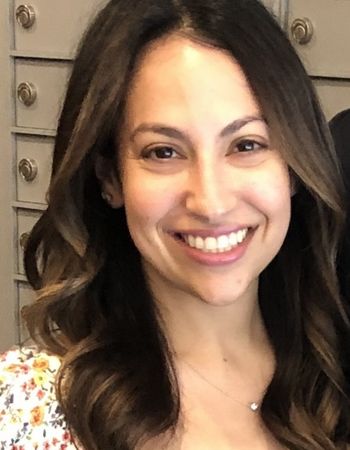

Jennifer is a licensed speech-language pathologist in the state of New York, with 8 years of experience. She holds her Certificate of Clinician Competence (CCCs) from the American Speech-Language-Hearing Association (ASHA), as well as her Certificate for Teaching Students with Speech-Language Disabilities (TSSLD) from the New York State Department of Education. Jennifer received her Bachelor of Arts degree from SUNY Binghamton in English, General Literature and Rhetoric. Jennifer went on to obtain her Master of Science degree from New York University in Communicative Sciences and Disorders.
Jennifer presently works as a New York City school-based speech-language pathologist in the shared-instruction program at Beacon High School. Working there since 2015, Jennifer primarily services neuro-diverse students enrolled in the District 75 inclusion program, but she also has provided services to the general education students. Day to day, Jennifer addresses speech and language skills that are critical to academic and social success in the upper grades and beyond, including executive functioning (task initiation, planning, prioritizing, time management, etc.), reading comprehension, written expression, vocabulary building, and advanced social skills such as social inferencing and social problem-solving.
Jennifer uses evidence-based principles from Michelle Garcia Winner’s Social Thinking curriculum, to foster social awareness across the school, home, community, and workplace environments. Jennifer strives to incorporate technology into sessions whenever possible. Jennifer builds in the use of simple functions like text-to-speech, speech-to-text, desktop folders, etc., to facilitate comprehension, writing, and executive functioning. Jennifer further uses technology to target social communication skills such as emailing and texting, which are such a big part of interpersonal interactions today.
As a seasoned, high-school speech-language pathologist working in an inclusion program, Jennifer has ample experience helping pre-teens and teens with mild-moderate learning differences. Jennifer works regularly with the following populations: high-functioning Autism Spectrum Disorder, attention difficulties, executive function challenges, comprehension and writing needs, and processing difficulties. Jennifer also has experience providing academic and social support to neuro-typical students, both in the school setting and in the home setting.
Outside of work, Jennifer enjoys traveling to warm-weather places as she is a certified SCUBA diver. As a New York native, she also loves watching football and rooting for the New York Jets!
LOCATION OF SERVICES PROVIDED:
Manhattan – Hell’s Kitchen, Midtown West, Flatiron, Chelsea, Union Square
Remote services are also available!
TYPE OF SERVICES: Individual therapy, parent consultations
EXPERTISE: high-functioning Autism Spectrum Disorder, adolescent literacy, executive functioning
AGES: middle school, high school, college
Stacey R.
M.S., CCC-SLP, TSSLD, SPEECH LANGUAGE PATHOLOGIST
Stacey R.
M.S., CCC-SLP, TSSLD, SPEECH LANGUAGE PATHOLOGIST


Stacey is a certified and New York State licensed Speech-Language Pathologist with over 15 years of experience. In addition, she holds a Certificate for Teaching Students with Speech-Language Disabilities (TSSLD) from the NYS Department of Education. She received her Master’s degree in Communication Disorders from Florida State University.
Stacey’s passion for supporting people with communication challenges stems from her experience having an older brother with an Autism Spectrum Disorder. She began her career providing assessment and treatment to children, adolescents, and adults with High-Functioning Autism Spectrum Disorder. Stacey then moved on to assessing and treating a range of speech and language disorders in various school settings including preschool, elementary school, and middle school. Throughout her 12 years working in elementary and middle schools, Stacey has provided assessment and interventions for people with Autism Spectrum Disorders (with a specialty in High-Functioning Autism), Attention Deficit Disorders (ADD/ADHD), Cerebral Palsy, Down Syndrome, Intellectual Disabilities, child neurological disorders, speech sound disorders, Specific Language Impairment, and Language-based learning disabilities (reading, writing, listening and speaking) in different classroom settings.
Stacey believes therapy should be individualized for each person she works with to reflect their interests, strengths and current needs. Building rapport with clients and their families/caregivers, and maintaining a flexible and welcoming therapeutic environment, are at the core of Stacey’s practice. She creates an engaging and affirming environment to enhance a client’s motivation and to maximize their progress through the use of interactive activities, along with on-going progress monitoring. Stacey believes that consistent collaboration with the client, their family/caregivers and educators, supports consistent progress and generalization of skills across settings.
Stacey is knowledgeable in the Teachers College Reading and Writing Project that is used across many schools in NYC. Stacey is trained in Michelle Garcia Winner’s Social Thinking methodology to help support clients with challenges in social communication. She implements other evidence-based instructional practices such as The Writing Revolution (Teaching Basic Writing Skills) by Judith Hochman to target written expression and annotation, note taking, visualization, summarizing, and main idea for reading comprehension. Stacey has direct experience teaching students to use Assistive Technology programs and accessibility options on their devices to support their reading, writing, and executive functioning abilities including speech to text function, text to speech, graphic organizers, folders, checklists, and word prediction (Co-Writer).
LOCATION: Brooklyn: Bedford Stuyvesant, Boerum Hill, Brooklyn Heights, Carroll Gardens, Clinton Hill, Cobble Hill, Crown Heights, Downtown Brooklyn, DUMBO, Fort Greene, Park Slope, Prospect Lefferts Gardens; Manhattan: Battery Park City, East Village, Financial District, Tribeca, Union Square; Queens: Long Island City
TYPE OF SERVICES: Individual therapy, reading comprehension/writing expression tutoring, parent consultations (remote and in person available)
EXPERTISE: social language/pragmatics, speech and language delays, oral language development, listening and reading comprehension, written expression, vocabulary, phonological awareness, articulation, preschool/elementary/middle school language demands, receptive and expressive language, narrative skills, executive functioning skills,critical-thinking skills (problem solving, inference, prediction, cause/effect)
AGES: age 4 through young adulthood
Janelle B.
M.S., CCC-SLP, SPEECH LANGUAGE PATHOLOGIST
Janelle B.
M.S., CCC-SLP, SPEECH LANGUAGE PATHOLOGIST


Janelle is a licensed Speech Language Pathologist and a certified Teacher of Students with Speech and Language Disabilities. She earned her Masters of Science degree in Speech Language Pathology at Howard University, and holds a Bachelor of Arts degree in English from Spelman College. Janelle holds a Certificate of Clinical Competence from the American Speech-Language-Hearing Association (ASHA). Janelle has been practicing speech-language pathology for 14 years, in a variety of settings including pre-school, elementary/middle school, and high school, and has supervised newly graduated speech pathologists, as a Clinical Fellow Supervisor. Janelle has also served as an outside evaluator for charter schools throughout New York City. Janelle currently serves as the speech department supervisor at a state sponsored school for students with disabilities.
Janelle has experience working with clients ages 2-21 to address a variety of language and articulation delays/disorders, phonological disorders, social/pragmatic deficits, auditory processing disorders, fluency, and oral-motor difficulties. She believes in providing therapy that is evidence based, functional, and fun. She enjoys crafting sessions that are thematically based, “real-life” scenarios/experiences, and naturalistic play. Janelle aims to connect to the classroom by incorporating curriculum based materials by simultaneously targeting language, literacy, and academic skills. She designs treatment to focus on improving auditory discrimination, auditory comprehension, reading comprehension, and increasing clients’ ability to identify the main idea, make inferences, summarize text, and generate narratives. Additionally, Janelle is skilled in implementing alternative augmentative communication systems, such as Picture Exchange Communication Symbols (PECS), and dynamic display devices (i.e.: Dynavox, iPad, etc.). Janelle believes in partnering with families and professionals in order to help clients achieve their maximum potential.
Location: Brooklyn: Park Slope, Carroll Gardens, Cobble Hill, Boerum Hill, Windsor Terrace, Prospect Heights, Other Brooklyn and Manhattan locations on a case-by-case basis.
Type of services: Individual therapy, group (2-3 children), parent consultations, speech-language evaluations
Age: Toddler through early adolenscence
Max F.
Ph.D., CCC-SLP, TSSLD
Max F.
Ph.D., CCC-SLP, TSSLD
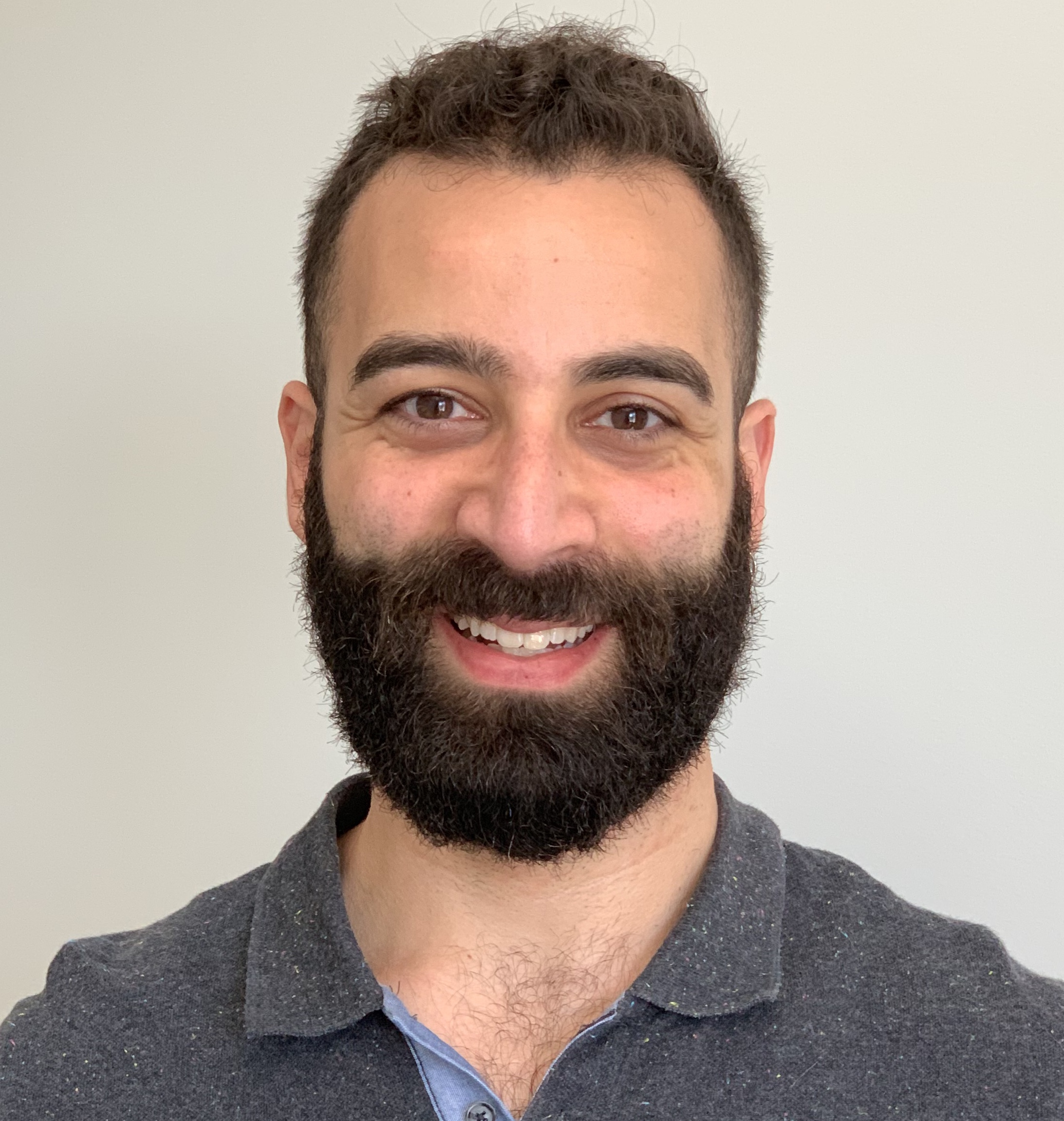

Max is a New York and Illinois licensed Speech-Language Pathologist and an Assistant Professor in the Department of Communication Sciences and Disorders at St. John’s University. He is a bilingual speaker of English and Spanish. He received his undergraduate degrees in Psychology and Spanish from Pennsylvania State University and Master’s and Ph.D. in Communication Sciences and Disorders from Northwestern University. He also holds the Teacher of Students with Speech and Language Disabilities (TSSLD) certificate, Professional Educator’s License in Illinois, and Certificate of Clinical Competence from the American Speech Language Hearing Association (ASHA).
Max has experience working with children 3+ in the assessment and treatment of articulation and phonological disorders, fluency, receptive/expressive language, pragmatics (high-functioning Autism). He also enjoys working with adults on fluency and accent modification. He has been trained on cognitive-behavioral approaches to fluency treatment and gender-affirming voice care with adults.
Max currently serves elementary-aged students (Kindergarten-3rd grade) in Illinois through teletherapy. He previously worked as a Speech-Language Pathologist in the Chicago Public Schools system. Max is familiar with the Common Core and often makes use of the school curriculum in treatment.
In addition, at St. John’s University, Max teaches Language Acquisition and Phonetics to undergraduate students, and Articulation and Phonology to graduate students. Max’s research takes him into daycares, working with 3- through 5-year-old children on enhancing language skills. Specifically, he creates a visual, verbal, and tactile multisensory experience within language intervention by using clay to create items that are the focus of the session (e.g., pizza). During these sessions, he implements evidence-based strategies, such as scaffolding, recasting, focused stimulation, and parallel talk to expand children’s sentences and provide them with syntactic models. In his school and daycare work, Max regularly meets with teachers and parents to discuss student progress towards goals and hear concerns from them.
LOCATION: Queens: Astoria, Forest Hills, Fresh Meadows, Bayside, Long Island City, Kew Gardens. Brooklyn: Greenpoint, Williamsburg. Manhattan: Upper East Side, Hell’s Kitchen, Midtown, Murray Hill, Teletherapy (anywhere in New York and Illinois).
TYPES OF SERVICES: Individual Therapy, Group Therapy (2-3 children), Parent/Teacher Coaching, Speech and Language Evaluations
AREAS OF EXPERTISE: Speech and Language Delays/Disorders, Articulation, Reading Comprehension, Social/Pragmatic communication, Fluency, Accent Modification.
AGES: 3-adults
Ashley J.
M.A., CCC-SLP, TSSLD
Ashley J.
M.A., CCC-SLP, TSSLD


Ashley is a New York State licensed Speech Language Pathologist and certified Teacher of Students with Speech and Language Disabilities (TSSLD). She holds her Certificate of Clinical Competence in Speech-Language Pathology from the American Speech Language-Hearing Association. Ashley received her Bachelor of Arts Degree in Speech-Language Pathology and Audiology from Iona College, New York. In 2017, she received her Master of Arts Degree in Speech-Language Pathology from Long Island University Post, New York. During her professional career, Ashley has gained therapeutic and diagnostic experiences in a range of diagnoses and disorders. She considers it a privilege to have such a dynamic career that allows children to help find their voice through various modalities of language.
Ashley has worked with children from early intervention to young adulthood (birth-21 years of age). She has serviced these children in a range of settings which include schools, specialized clinics, and private homes. Ashley takes pride in conducting differentiated speech-language therapy based on a child’s needs and interests. The diverse diagnosis that Ashley addresses includes expressive and receptive language delays, executive functioning skills, reading comprehension, articulation delays, fluency, phonological awareness, auditory processing, language processing, and social/pragmatic communication. Ashley has experience working with children without learning differences in addition to children with Down Syndrome, Intellectual Disability, and Autism Spectrum Disorder.
She also has promoted communication to non-verbal and minimally verbal populations through the use of augmentative communication systems which include Proloquo2go and Touch Chat. For children who are verbal but have trouble generating and using language appropriately, Ashley utilizes a multidisciplinary approach (ie: visual, auditory, kinesthetic, tactile) to facilitate successful communication. Ashley is experienced with the reading and phonemic initiative Fundations and trained in Lively Letters.
Currently, Ashley is employed by the New York City Department of Education working with students in preschool up to 5th grade. Ashley has the privilege of working closely with students on the Autism Spectrum Disorder Horizon program. She works vigorously to enhance pragmatic language with this population and provides therapy promoting conversational skills, expressing emotions, role playing scenarios, and flexible thinking. Ashley has developed and implemented functional life skills therapy which aids individuals in everyday tasks such as cooking, folding clothing, categorizing kitchen items and applying for jobs. Ashley believes in collaboration with other specialists and open communication with parents to promote success. She strives for an engaging and fun environment that allows a child to thrive.
LOCATION: WESTCHESTER: Bronxsville, Harrison, Larchmont, Mamaroneck, Mount Vernon, New Rochelle, Pelham, Rye
TYPE OF SERVICES: Individual therapy, group therapy(2-4 children), speech-language evaluations, parent consultation, parent training
EXPERTISE: Early Language Development, Speech-Language Delays, Articulation and Phonology, Receptive/Expressive Language Delays, Auditory Processing, Language Processing, Social/Pragmatic Language Skills, Executive Functioning Skills, Reading Comprehension, Fluency, Autism Spectrum Disorder
AGES: Birth through 21 years of age
Tina W.
M.S., CCC-SLP, TSSLD
Tina W.
M.S., CCC-SLP, TSSLD
M.S., CCC-SLP, TSSLD


Tina is a New York State licensed Speech-Language Pathologist and Teacher of Students with Speech-Language Disabilities (TSSLD). She holds her Certificate of Clinical Competence (CCC) from the American Speech-Language-Hearing Association. Tina received a B.A. in Communication Sciences and Disorders from St. John’s University and a M.S. degree in Communicative Sciences and Disorders from New York University. She has worked with preschool, elementary, middle and high school students with varying Speech and Language disorders.
Tina’s special interests include Augmentative and Alternative Communication (AAC), expressive, receptive, and pragmatic language disorders secondary to Autism Spectrum Disorder, stuttering and fluency disorders, and voice and articulation disorders.
Ongoing education and training are of the utmost importance to Tina. In 2022, she was a recipient of the ASHA Award for Continuing Education (ACE) after completing over 70 hours of continuing education credits in 36 months. Tina is PROMPT Level 1 trained, PECS Level 1 trained and completed training in Diagnosis & Management of Childhood Apraxia of Speech using DTTC. She has completed extensive training in Social Development Intervention (SDI) through the ASD Nest Support Project at NYU Steinhardt.
Tina has worked with toddlers, school age students and adults to improve articulation, pronunciation, expressive and receptive language, comprehension, writing, grammar, vocabulary, pragmatics and stuttering. Tina has worked with non-speaking autistic students utilizing Augmentative and Alternative Communication devices such as Proloquo2go, Tobii Dynavox and LAMP. Currently, Tina provides Social Development Intervention for students in the NYC DOE.
Tina is a neurodiversity affirming therapist with a strength based focus. She utilizes her clients’ interests and strengths when planning her therapy. Tina combines developmental norms and functional language to develop an evidenced-based course of therapy for each client. Clear goals, targets and strategies are utilized to help each child reach their individualized goals.
Tina is a trained vocalist and sings in a baby and toddler music group, a motown band, and a contemporary choir. She loves using music and singing in her sessions!
LOCATION: Manhattan (Lower East Side, Murray Hill, Union Square, Midtown East, Midtown West, Chelsea, West Village and Upper East Side), Brooklyn (case by case basis).
TYPE OF SERVICES: i.e. Individual therapy, group (2-3 children), parent consultations
EXPERTISE: i.e. Speech-language delays, Reading Comprehension and Fluency, Writing, Autism Spectrum Disorder, Articulation, Stuttering, Voice
AGES: i.e. birth through adults
Julie D.
NYS Licensed Speech & Language Pathologist, M.S., CCC-SLP
Certified Teacher of Students with Speech and Language Disabilities (TSSLD)
Certified Bilingual English/Russian Speech & Language Pathologist
Julie D.
NYS Licensed Speech & Language Pathologist, M.S., CCC-SLP
Certified Teacher of Students with Speech and Language Disabilities (TSSLD)
Certified Bilingual English/Russian Speech & Language Pathologist


Julie is a New York State licensed Speech-Language Pathologist with a bilingual English/Russian certification and a certified Teacher of Students with Speech and Language Disabilities (TSSLD). She has over fifteen years of experience working in various settings including United Cerebral Palsy of NY, charter, and private schools, as well as seeing private clients in Brooklyn, NY. She holds a master’s degree in Speech-Language Pathology from Long Island University and maintains her Certificate of Clinical Competency in Speech-Language Pathology (CCC-SLP) from the American Speech-Language-Hearing Association (ASHA). With a focus on addressing the root causes of speech and language difficulties, Julie draws from her diverse experience working with a spectrum of disorders. Julie has effectively supported cases ranging from articulation and phonological issues to expressive (speaking, narrative building, writing), receptive (comprehension, abstract and figurative language), and pragmatic (social) language delays, auditory processing, Apraxia of speech, Autism Spectrum Disorders, hearing impairments, pre-literacy and literacy language-based difficulties, narrative and story grammar development and fluency challenges, Dyslexia, semantic language, as well as executive functioning delays.
Julie is trained in Level I PROMPT, which is tactile kinesthetic technique that uses touch to guide the jaw, lips, tongue through a targeted word or phrase level. She is also trained in Lively Letters, which is a phonics and phonology-based program to improve phonemic awareness, reading and writing, Expanding Expression Tool Techniques, which improves descriptive and overall expressive language and Braidy the Story Braid-Student Story Grammar Marker, which helps with understanding and using story grammar elements.
Collaborating closely with families and colleagues, her approach extends beyond enhancing communication skills, aiming to foster holistic development and confidence of the person within their academic and social environments.
Julie’s bilingual background helps her properly evaluate and treat Russian-speaking clients as well as allows her to provide comprehensive and ethnically sensitive therapy to children from various multilingual backgrounds.
Currently Julie works in Nursery- through 8th grade school during the school day. Outside her professional scope, Julie finds joy in her husband, three children, a cat, and a turtle. During her leisure time, she indulges in activities like swimming, reading, skiing, hiking, karaoke, and quality moments with her loved ones.
Julie’s devotion to the children and adolescents she serves transcends her therapy sessions. Through her bilingual proficiency, expertise, compassionate, evidence based and engaging approach, she fosters effective communication in her students and supports families in meaningful carryover strategies impacting and improving their everyday life.
LOCATION: In-Person Therapy: Brooklyn: Park Slope, Windsor Terrace Teletherapy: Anywhere
TYPE OF SERVICES: Individual and small group speech-language therapy, bilingual Russian therapy and evaluations, parent and teacher consultation, reading/writing intervention, executive function and higher language organization support
EXPERTISE: Early language, Speech-language delays (receptive, expressive, pragmatic), articulation/phonological disorders and delays, Apraxia, multilingualism, pragmatic language, executive function disorders, narrative building, semantic language skills
AGES: Three through adult
Katie G.
M.S. CCC-SLP, SPEECH-LANGUAGE PATHOLOGIST
Katie G.
M.S. CCC-SLP, SPEECH-LANGUAGE PATHOLOGIST
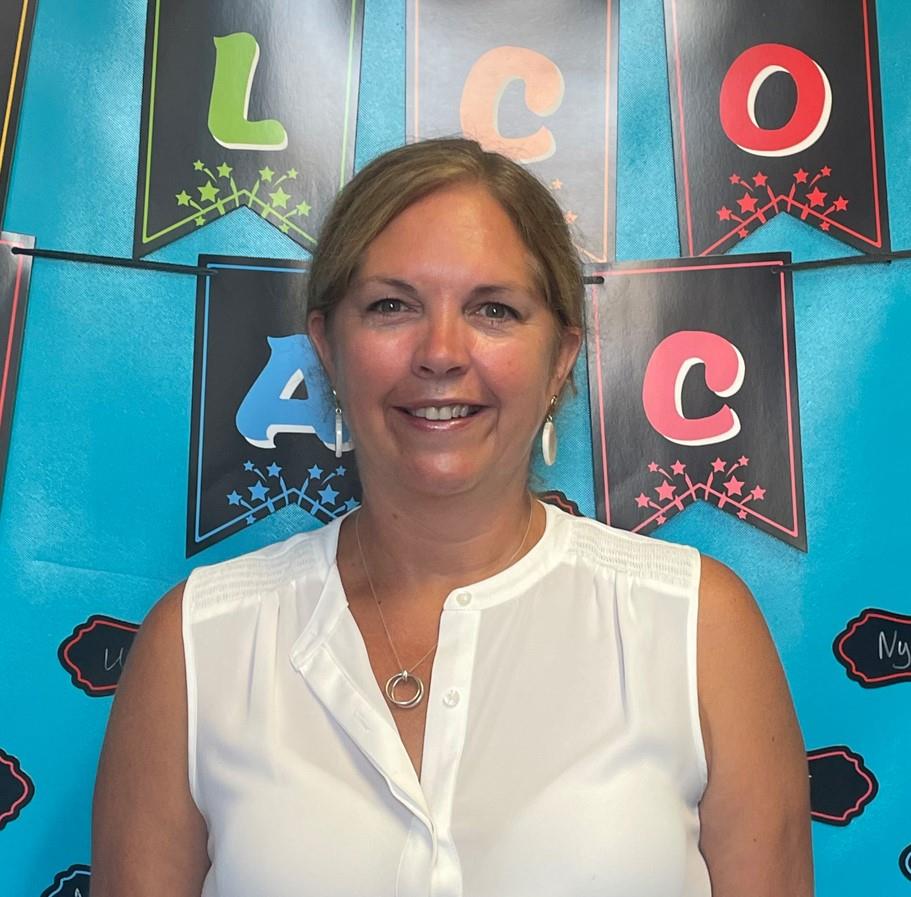

Katie is a New York State licensed Speech-Language Pathologist with over 18 years experience working with children ages birth to 13 years. She received her Certificate of Clinical Competence from the American Speech and Language Association in 2007 and holds her Teacher of Students with Speech and Language Disabilities professional license from the New York State Department of Education. Katie received her B.A. from Fordham University and her Masters of Science from Adelphi University where she was awarded the Joan Fox Memorial Award for demonstrating outstanding clinical competence. Post graduate trainings that Katie has participated in include those on articulation therapy, literacy, apraxia, autism spectrum disorder and treating children with comprehension delays.
Katie began her career as a Speech-Language Pathologist working through Early Intervention treating children ages birth to three years. She then worked as a Speech-Language Pathologist in a public middle school. Katie moved on to work in a public grammar school with children from ages 3 to 12 while continuing to work with children ages birth to three part time.
The areas that Katie is qualified in for the above ages include working with children with apraxia, ADHD, executive function, autism spectrum disorder, speech-language delays in toddlers, phonology, receptive and expressive language delays, stuttering, auditory processing, fluency, decoding, literacy, social/pragmatic delays, and comprehension delays. Katie believes that each child needs an individualized therapy plan to meet their personal needs. “Cookie cutter” therapy or “one size fits all ” therapy is not beneficial. She will meet the child and his/her family to discuss concerns and answer questions. Together, they will create goals and a treatment plan to help the child’s overall communication. If the child sees other therapists, Katie will reach out to them to discuss successful strategies to help the child begin having a positive experience in therapy. She often uses play therapy and games to allow sessions to be enjoyable for the children and to help them and their families see progress towards meeting goals. Katie enjoys going to the beach, spending time with her family, and reading in her spare time. She has two teenage children of her own.
LOCATION: Queens: Breezy Point, Roxbury, Neponsit, Belle Harbor, Rockaway Park.
TYPE OF SERVICES: Individual therapy, speech-language evaluations, parent consultations, parent training.
EXPERTISE: Receptive and expressive speech-language delays, Autism Spectrum Disorder, Executive Function, Social/pragmatic skills.
Ages: Birth through elementary school.
Laura B.
CCC-SLP, TSSLD, Speech Language Pathologist
Laura B.
CCC-SLP, TSSLD, Speech Language Pathologist


Laura works with babies, toddlers, and children in New York City (North Brooklyn & Manhattan). She works with toddler late talkers, preschool and school age language development, articulation and speech sound disorders, and oral-motor function to support speech development.
Laura received her Bachelor of Science degree in Communication Sciences and Disorders from the University of Vermont and her Masters degree in Speech-Language Pathology from St. John’s University in New York City. Over the course of her clinical career, she has worked in a variety of settings including a hospital, general education and special education schools, home health care for early intervention, and in private practice. She is passionate about working with families to support ongoing speech and language development for long-term outcomes.
Laura lives in Greenpoint Brooklyn with her fiancé and is happy to serve her local community in-person. She also sees parents virtually for parent guidance sessions for families living outside of New York City. She currently is:
- Licensed Speech-Language Pathologist (also called Speech Therapist)
- Certified by the American Speech and Hearing Association (ASHA).
- Certified New York State Teacher of Students with Speech and Language Disabilities (TSSLD)
- Trained in PROMPT
- Trained in Oral Placement Therapy.
Devan B.
M.S., CCC-SLP, TSSLD, FEEDING SPECIALIST
Devan B.
M.S., CCC-SLP, TSSLD, FEEDING SPECIALIST
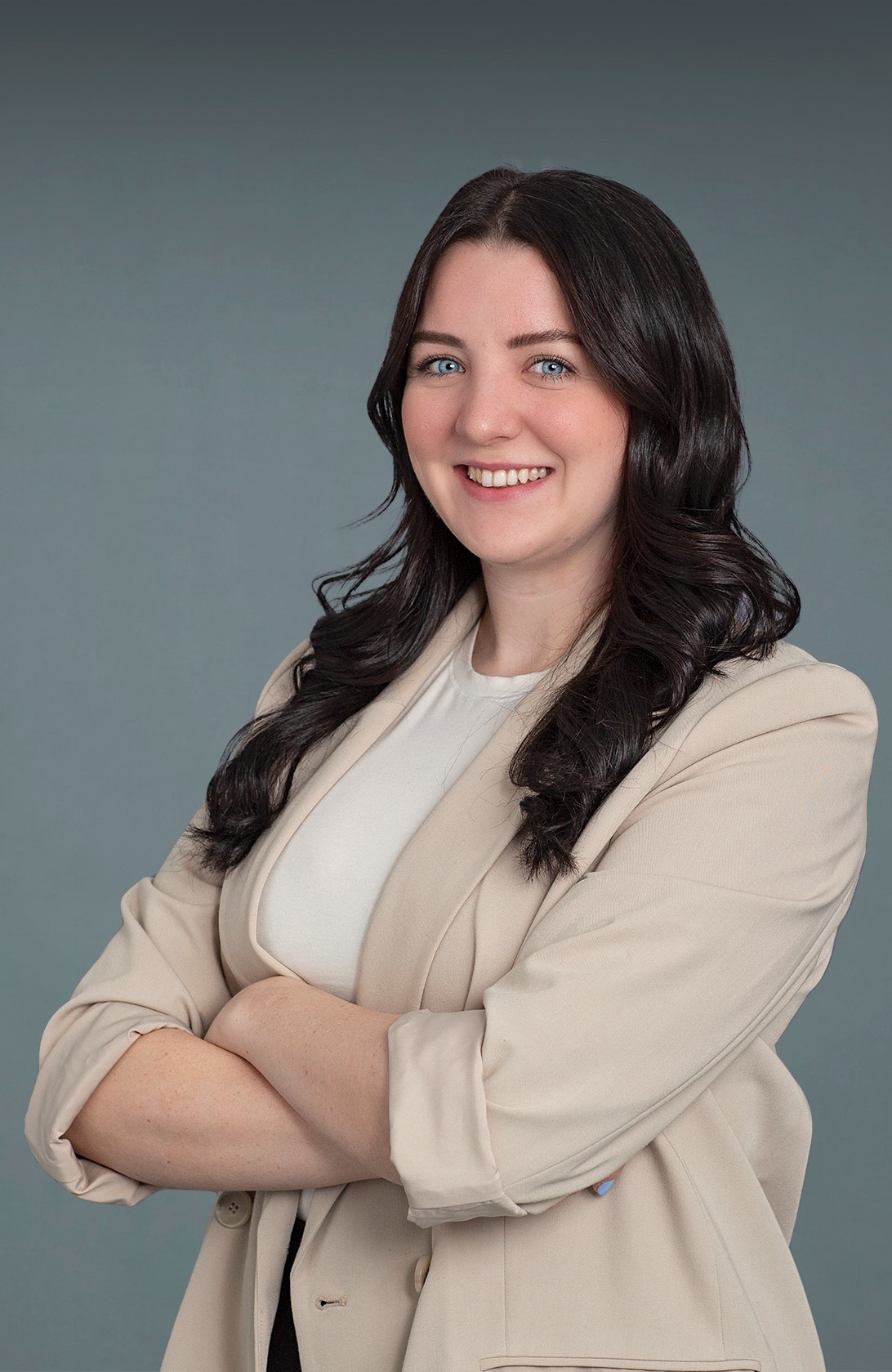

Devan is a New York State and New Jersey State licensed clinician who received a bachelor’s degree from Pace University and a master’s degree in Communication Sciences and Disorders from Teachers College, Columbia University. She holds her Certificate of Clinical Competence in Speech-Language Pathology from the American Speech-Language-Hearing Association (ASHA) and has also obtained a post-master’s Advanced Certificate in Pediatric Dysphagia from New York Medical College.
Since graduating, Devan has worked in a variety of settings including long-term skilled nursing facilities, inpatient rehabilitation, including an inpatient pediatric traumatic brain injury unit, and outpatient medically-based settings in New York hospitals. She has worked with pediatric patients with diagnoses related to airway disorders, respiratory/pulmonary disorders, gastrointestinal disorders, cardiac conditions, and congenital and acquired neurological impairments. She specializes in complex, medically-based feeding/swallowing disorders, as well as, sensorimotor and/or behavioral feeding difficulties. Devan has significant experience treating infants who have difficulties with bottle feeding or transitioning to purees and solids, introducing PO feeding to medically complex pediatric patients, and helping patients expand their food repertoires to different food types and textures.
Devan implements a patient-centered and holistic approach to assessment and treatment of children of all ages. She works alongside families and caregivers to help them achieve their goals by providing evidence-based therapy, functional and specific treatment approaches, and extensive family education. Devan strongly believes in a child-led and responsive feeding approach to reduce the stress on the child and family or caregivers.
Locations: BROOKLYN: Bay Ridge, Dyker Heights, Park Slope, Brooklyn Heights, Borough Park, Kensington, and more. Telehealth also available.
STATEN ISLAND: all neighborhoods. MANHATTAN: Murray Hill, Kips Bay, Midtown East, Lower East Side, Greenwich Village, Tribeca, Financial District and more. Telehealth also available. NEW JERSEY: available in-person on a case-by-case basis. Telehealth also available for all areas.
Type of services: feeding/swallowing evaluations and treatment, individual therapy, parent consultations
Expertise: feeding and swallowing disorders, sensorimotor or behavioral feeding delays/disorders, oropharyngeal dysphagia, infant feeding and swallowing
Ages: birth through adolescence
Leslie M.
M.S., CCC-SLP, TSSLD, FEEDING SPECIALIST
Leslie M.
M.S., CCC-SLP, TSSLD, FEEDING SPECIALIST


Leslie is a New York State licensed speech language pathologist with over 25 years of experience working with children, adolescents and their families. She holds a Certificate of Clinical Competence (CCC) from the American Speech-Language-Hearing Association and is a certified Teacher of the Speech and Hearing Handicapped (TSHH). Leslie graduated from St. Joseph’s College, Brooklyn with a Bachelor of Arts in Early Childhood Education and Speech Communication.. She holds a Master’s of Science degree in Speech Language Pathology from Brooklyn College. She has furthered her studies with classes in Autism Spectrum Disorders, DeafBlindness, Students with High Intensity Support Needs and Listening and Spoken Language strategies for the Deaf and Hard of Hearing.
Leslie is an experienced clinician who has provided site-based and home-based diagnostic and therapeutic services to clients who have been diagnosed with early speech language delays, Down Syndrome, Autism Spectrum Disorder, Deaf-Hard of Hearing, Deaf-Blind, Deaf-Disabled, Multiple Disabilities and Intellectual Disabilities ages birth-21 years.. She is skilled in American Sign Language, Picture Exchange Communication System(PECS), and high-tech AAC devices and applications (Proloquo2go, TouchChat). She is currently working as a clinician, educator, and parent coach/educator in a New York State funded Parent Infant Program.
Leslie believes that collaboration with families, teachers, and other professionals is the foundation for successful intervention. She believes that using a combination of evidence-based practices, parent/caregiver involvement and coaching, and making learning fun are essential for individuals to reach their full potential.
LOCATION: Nassau County: Garden City, Mineola, Williston Park, Carle Place, New Hyde Park, Floral Park, Manhasset and other neighboring towns. Brooklyn: Park Slope, Prospect Heights, Marine Park. Queens: Belle Harbor, Rockaway Beach, Breezy Point, Rockaway Point
TYPES OF SERVICES: Individual therapy, speech-language evaluations, consultations and parent training.
EXPERTISE: Early language development, Deaf and Hard of Hearing, Deaf-Blind, speech-language delays, receptive and expressive language delays, articulation and phonology, Autism Spectrum Disorder, Down Syndrome.
AGES: Infants-21 years of age.
Abigail L.
M.S. Ed., CCC-SLP, New York State licensed Speech-Language Pathologist, & certified Teacher of Students with Speech and Language Disabilities (TSSLD)
Abigail L.
M.S. Ed., CCC-SLP, New York State licensed Speech-Language Pathologist, & certified Teacher of Students with Speech and Language Disabilities (TSSLD)


Abby is a New York licensed Speech-Language Pathologist and a certified Teacher of Students with Speech and Language Disabilities (TSSLD). She holds a Certificate of Clinical Competence from the American Speech-Language-Hearing Association (ASHA). Abby earned her Master of Science degree in Speech-Language Pathology at SUNY Buffalo in 2015 and her Bachelor of Science degree in Communicative Disorders and Sciences from SUNY Geneseo in 2012. Throughout her career, Abby has gained ample hands-on experience working with various speech and language difficulties in both the general education setting as well as the special education setting, including Articulation, Phonological Processes, Expressive/Receptive Language, Apraxia, Fluency, Phonological Awareness, Social Pragmatics, and Augmentative and Alternative Communication (AAC).
Abby began the first 5 years of her career working as a full-time SLP in an elementary and middle school in upstate New York and then in Atlanta, Georgia, both in-person and virtually. In her spare time, she began working 1:1 with preschoolers after school, which began her love for working with the preschool population. She spent the next 3 years working closely with preschool age clients, ages 3 through 5, with multiple speech and language disorders including specifically articulation, phonological processing disorders, phonemic awareness, AAC, Apraxia, and late talkers.
A therapist trained in the Orton-Gillingham Approach as well as the Heggerty Phonological and Phonemic Awareness curriculum, Abby’s OG trained tutoring focuses on the unique needs of each child. Abby also has completed extensive training in Natural Language Acquisition and Gestalt Language Processing. She is a neurodiversity affirming therapist with a strength-based, child-centered focus. She believes strongly in utilizing clients’ interests when planning her therapy, and often employs a play-based approach in her therapy sessions to combine evidence-based approaches with real-life strategies to help children reach their individualized goals (and have fun!). She is passionate about creating open communication in order to better connect and collaborate with families, caregivers, teachers, and other service providers because success goes far beyond the therapy session.
In her free time, Abby creates research based hands-on materials for other Speech Language Pathologists to use in their sessions in order to help empower busy SLPs around the globe. She also enjoys exploring coffee shops in Brooklyn with her husband and French Bulldog, and always has a new book to read or recommend!
LOCATION: Brooklyn: Prospect Park, Park Slope, Clinton Hill, Fort Greene, Prospect Heights, Brooklyn Heights and other locations on a case-by-case basis. Teletherapy: anywhere in New York State
TYPE OF SERVICES: Individual therapy, group (2-3 children), parent consultations, remote therapy
EXPERTISE: Pre-Language Development, Autism Spectrum Disorder, Late Talkers, Receptive/Expressive Language Delays, Articulation/Phonological Disorders (Speech Sound Disorders), Social Communication (Pragmatic Language)
AGES: 2 through early adolescence
Paula H.
M.S. TSSLD, SPEECH-LANGUAGE PATHOLOGIST
Paula H.
M.S. TSSLD, SPEECH-LANGUAGE PATHOLOGIST


Paula has worked as a speech-language pathologist for 13 years. She holds a New York State Speech-Language Pathology license and holds her TSSLD certification, providing services in English and Spanish.
Paula received a B.A. in Psychology from the University of Western Ontario, and an M.S. in Speech-Language Pathology from SUNY College at Fredonia. She completed the Bilingual Extension at Columbia University Teachers College, Bilingual Extension.
Much of Paula’s professional experience has involved providing therapy to toddlers as well as preschool and school-aged children with delays or disorders in the areas of articulation, motor speech including Apraxia, receptive and expressive language, social skills, as well as treating developmental delay, Down syndrome, and Autism Spectrum Disorder.
Prior to working as a speech-language pathologist, Paula worked for seven years as a behavior therapist, providing ABA therapy in the private and public sectors. Paula is a level one PROMPT-trained therapist and has received Hanen certification for Early Intervention and parent training.
Paula has experience providing services in a wide range of settings, including preschools, elementary and middle schools, home-based and center-based early intervention settings, child care centers, private clinics, and adult in-patient and out-patient rehabilitation centers. In addition to the treatment of speech and language delays and disorders, Paula provides accent modification services to adults for professional and personal purposes.
Paula’s experience working in diverse areas has allowed her to be able to identify and address difficulties in fundamental skills such as establishing and maintaining attention, developing executive functioning skills, as well as learning within and generalizing skills to the natural environment, which are the basis for successful learning in individuals of all ages and areas difficulty. Paula takes great pleasure in successes small and large, knowing that each one is a step in the direction of fulfilling a client’s potential.
LOCATION: Manhattan (Tribeca, Battery Park, West Village, Upper West Side)
TYPE OF SERVICES: Individual therapy, speech-language evaluations, parent consultation and training, accent modification
EXPERTISE: receptive and expressive language, articulation and motor speech, Apraxia, autism spectrum disorder
AGES: Birth through adult
Rachel Z.
M.A., CCC-SLP, B.S. in Communication Sciences and Disorders, Certified Teacher of Children with Speech and Language Disabilities (TSSLD)
Rachel Z.
M.A., CCC-SLP, B.S. in Communication Sciences and Disorders, Certified Teacher of Children with Speech and Language Disabilities (TSSLD)
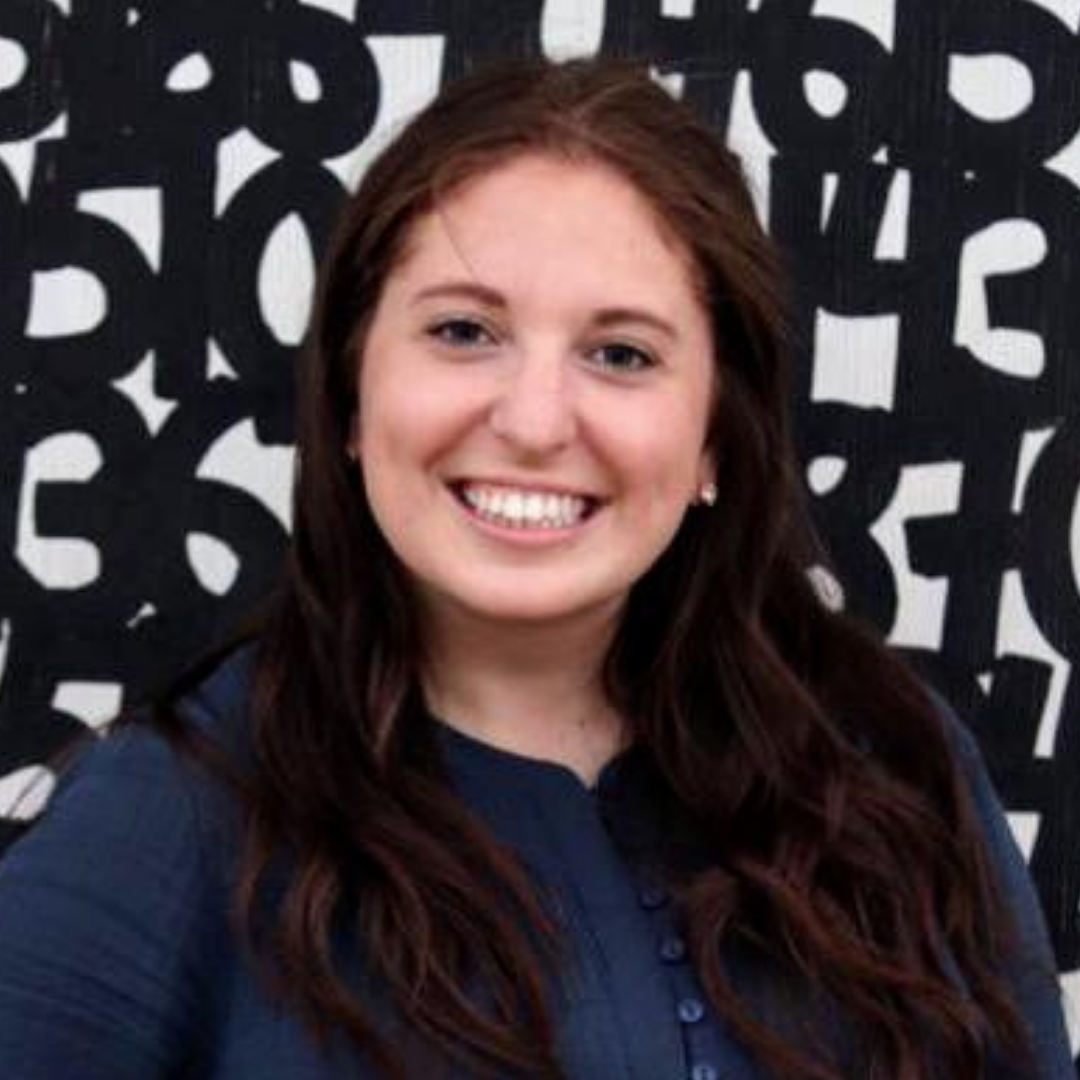

Rachel is a New York State licensed speech-language therapist who holds a Certificate of Clinical Competence (CCC) from the American Speech Language-Hearing Association. She received her master’s degree in speech-language pathology from Hunter College and her B.S. in Communication Sciences and Disorders from Touro College. Rachel is also certified as a Teacher of Children with Speech and Language Disabilities (TSSLD) and is level one PROMPT trained.
Rachel is currently a full-time speech-language pathologist at the NYC Department of Education, providing assessment and treatment of a culturally diverse population of elementary and preschool-age students. Rachel also holds prior experience in providing services for students grades K-8 at a specialized school for language-based learning challenges and for children ages Birth-5 at a specialized preschool and early intervention center for hearing impairment.
Rachel is proficient in the use of standardized and dynamic assessment procedures to evaluate speech-language skills and develop individualized treatment plans. She has experience treating a variety of delays/disorders, including expressive-receptive language disorders, language-based learning difficulties, Auditory Processing Disorder, hearing impairment, Autism Spectrum Disorders, articulation, and phonological impairments, Dyslexia, Emotional Disturbance, Learning Disabilities, Intellectual Disability, and fluency or stuttering.
As a school-based therapist, Rachel has worked extensively on treating speech and language difficulties that affect literacy development, suchas decoding and reading comprehension. She is trained in various Orton-Gillingham-based intervention programs, such as Fundations, S.P.I.R.E, Sounds Sensible and the Heggerty Phonological and Phonemic Awareness curriculum. She is also trained in the Story Grammar Marker tool, Expanding Expression tool, and Anita Archer’s REWARDS program, all of which support school-based literacy skills. Rachel is passionate about instructing her students on a variety of language-learning strategies for decoding and reading comprehension using multiple modalities that help them become more independent in their own learning and academic performance.
Rachel also has a keen interest in facilitating expressive language development in the population of late-talkers. Rachel has experience supporting toddlers in expanding their vocabulary and utterances, as well as empowering parents with strategies they can implement during daily routines.
Rachel firmly believes in using the personal interests and clients’ strengths to help plan therapy that is meaningful and engaging. She enjoys collaborating with caregivers, professionals, and the clients themselves to create a tailor-made treatment plan that will help them generalize their skills to all aspects of their life.
LOCATION: Manhattan: Uptown, Midtown and Downtown Locations; Queens: Flushing, Kew Gardens, Forest Hills, Richmond Hill, Rego Park, Whitestone, Fresh Meadows, Hillcrest.; Other locations on a case-by-case basis
TYPE OF SERVICES: Individual therapy, group (2-4 children) therapy, speech-language evaluations, parent consultation
EXPERTISE: Language-based disorders, articulation and phonological delays, literacy skills, reading comprehension, oral and written language, organization skills, vocabulary development, pragmatics, and social skills
AGES: Birth through Adolescence
Christina H.
M.S., CCC-SLP, TSSLD, Speech-Language Pathologist
Christina H.
M.S., CCC-SLP, TSSLD, Speech-Language Pathologist
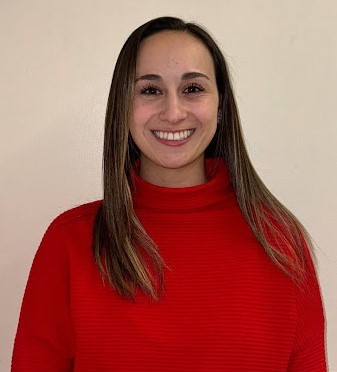

Christina, M.S., CCC-SLP, TSSLD, is a licensed Speech-Language Pathologist in New York State and certified by the American Speech Hearing Association (ASHA), serving within the New York City Department of Education. She earned her Bachelor’s degree in Cognitive Science and Linguistics from The University of Delaware and a Master of Science in Speech-Language Pathology from Brooklyn College.
With experience teaching at the undergraduate level, Christina has supported many students in their educational pursuits. She is professionally certified as a Teacher of Students with Speech and Language Disabilities (TSSLD) and holds an ASHA Certificate of Clinical Competence (CCC). Christina is trained in PROMPT therapy, employing a tactile-kinesthetic approach to address oral muscular phonetic targets.
In her clinical practice, Christina has worked with children in diverse settings, including private clinics and public schools. She offers intervention and assessment for children with a wide range of conditions: autism, expressive and receptive language delays, articulation and phonological disorders, social pragmatic disorders, selective mutism, orofacial myofunctional disorders, fluency disorders (stuttering and cluttering), cognitive impairments, as well as reading, writing, and hearing impairments. Christina adopts a client-centered, developmental strategy in evaluating and devising treatment plans, firmly believing in tailoring her approach to meet each client’s unique needs.
LOCATIONS: Brooklyn- Greenpoint, Williamsburg; Queens- Astoria, Long Island City (LIC), Ditmars-Steinway, Sunnyside, Maspeth, Jackson Heights, Woodside.
TYPE OF SERVICES: In-Person and Remote: Individual Therapy, Group Therapy (2-3 children), Speech-Language Evaluations, Parent Consultation, and Training
EXPERTISE: Early Speech and Language Development, Autism Spectrum Disorder, Social Communication (Pragmatic Language), Expressive/Receptive Language Delays, Reading Comprehension, Articulation, Auditory Processing, Fluency, and Apraxia of Speech.
AGES: Birth through High School
Devin N.
CCC-SLP, M.S in Communication Sciences and Disorders, Certified Bilingual (Spanish/English) Teacher of students with speech and language disabilities (TSSLD)
Devin N.
CCC-SLP, M.S in Communication Sciences and Disorders, Certified Bilingual (Spanish/English) Teacher of students with speech and language disabilities (TSSLD)


Devin is a speech language pathologist licensed in New York State, boasting a decade of experience. She possesses a Certificate of Clinical Competence from the American-Speech-Language-Hearing Association and is a certified bilingual (Spanish/English) teacher for students with speech and language disabilities. Devin is trained in PROMPT (Prompts for Restructuring Oral Muscular Phonetic Targets) and has completed intermediate Orton Gillingham Training via the Institute for Multisensory Education. She earned her Bachelor of Science in Communication Sciences and Disorders, minoring in Spanish, from the College of Saint Rose in Albany, NY, and obtained her Master of Science in Communication Sciences and Disorders, alongside a Bilingual Education Certificate, from Adelphi University. Devin currently serves in a Brooklyn public elementary school under the Department of Education, supporting students from diverse cultural and linguistic backgrounds who also have speech and language disorders.
Devin’s expertise extends to children aged 18 months to 21 years across various settings, including private practice, early intervention home care, preschool, and school settings. Her practice areas include early speech language delay, receptive and expressive language disorders, issues pertaining to cultural and linguistic diversity, selective mutism, articulation and phonological disorders, apraxia, reading and writing disorders, auditory language processing, narrative intervention, executive functioning, autism, fluency disorders, and support for students with intellectual disabilities and those using Augmentative Alternative Communication devices, like proloquo2go. Devin is committed to fostering growth mindsets in her students, believing in their potential to reach peak communication, language, and academic skills by leveraging their unique strengths and multimodal support strategies (visual, verbal, and tactile).
She also specializes in assisting students with dyslexia or reading/writing delays, providing targeted instruction in phonological awareness and phonics to bridge the gap with their age-matched peers.
Devin has expertise with behavioral feeding disorders. She ensures students feel safe and encouraged to try new foods with family support and training to establish consistent mealtime routines.
Outside of her professional life, Devin enjoys beach outings, outdoor activities, Pilates, reading, and journaling. She is dedicated to a philosophy of growth and lifelong learning, constantly seeking opportunities for personal and professional advancement.
LOCATION: remote therapy, Park Slope, Park Slope South, Windsor Terrace, Ditmas Park, Kensington, Gowanus, Sunset Park, Prospect Heights
TYPES OF SERVICES: Individual therapy, group (2-3 children), parent consultations
EXPERTISE: narrative interventions, receptive and expressive language development, reading/auditory comprehension, bilingual students and students who are culturally and linguistically diverse, selective mutism, literacy, articulation and phonological disorders, apraxia, autism, executive functioning, auditory language processing, stuttering and feeding
AGE: 18 months to 21 years
Jeff C.
M.S., CCC-SLP, SPEECH-LANGUAGE PATHOLOGIST
Jeff C.
M.S., CCC-SLP, SPEECH-LANGUAGE PATHOLOGIST


Jeff is a licensed Speech Language Pathologist and a certified Teacher of Students with Speech and Language Disabilities (TSSLD). He earned his Masters of Science degree in Speech Language Pathology at Long Island University (Brooklyn), and holds a Bachelor of Arts degree in Fine Art from Burlington College. Jeff holds a Certificate of Clinical Competence (CCC) from the American Speech-Language-Hearing Association (ASHA).
Jeff has experience working with clients to address challenges related to stuttering, autism spectrum disorders, apraxia, phonological disorder, articulation, language delays and traumatic brain injury. He has helped school aged children to improve receptive/expressive language skills, reading comprehension, inferencing, literacy and organisational writing skills.
Jeff currently works for AHRC New York City providing speech and language services in a Brooklyn special education preschool. Jeff is skilled in implementing alternative/augmentative communication systems, such as Picture Exchange Communication Symbols (PECS), and dynamic display devices (i.e TouchChat, Dynabox etc.) Prior to becoming a speech-language pathologist.
Jeff worked with children in a pre-professional capacity as an autism interventionist, and one-to-one program guide in a special education high school in Vermont. In addition to collaborating with parents and other professionals, Jeff believes in a multi-modality approach to learning: utilising play, art, music, and literacy-based activities during therapy in order to help clients achieve their individual goals.
Location: Brooklyn: Boerum Hill, Borough Park, Carroll Gardens, Cobble Hill, Crown Heights, Ditmas Park, Downtown Brooklyn, East Flatbush, East Midwood, Flatbush, Fort Green, Gowanus, Kensington, Midwood, Park Slope, Prospect Heights, Prospect Park West, Prospect Park South Slope, Windsor Terrace
Type of Services: Individual therapy, group (2-3 children), parent consultations, speech language evaluations
Expertise: Stuttering, Speech, Language, Pragmatics, Phonological awareness, Apraxia
Ages: Toddler through early adolescence
FREE CONSULTATION!!!
Call: (347) 394-3485,
Text: (917) 426-8880
Email: [email protected]
(we respond to email right away!)
